OFFICIAL TRADE JOURNAL OF THE MICHIGAN CANNABIS INDUSTRY ASSOCIATION



OFFICIAL TRADE JOURNAL OF THE MICHIGAN CANNABIS INDUSTRY ASSOCIATION


Ten years in, the homegrown company has multiple outlets and a thriving product line








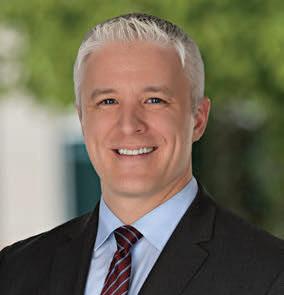

SSG
Shout



We are fortunate to be partnering with SSG to help manage our


Greg and the entire SSG Team have been a tremendous help in the implementation and administration of our employee benefits program across our multiple locations. Their expertise and knowledge regarding coverage and cost, technology, and ACA compliance has provided exceptional value in helping us make informed decisions!

GREG SUDDERTH CEO & Lead Benefits Advisor







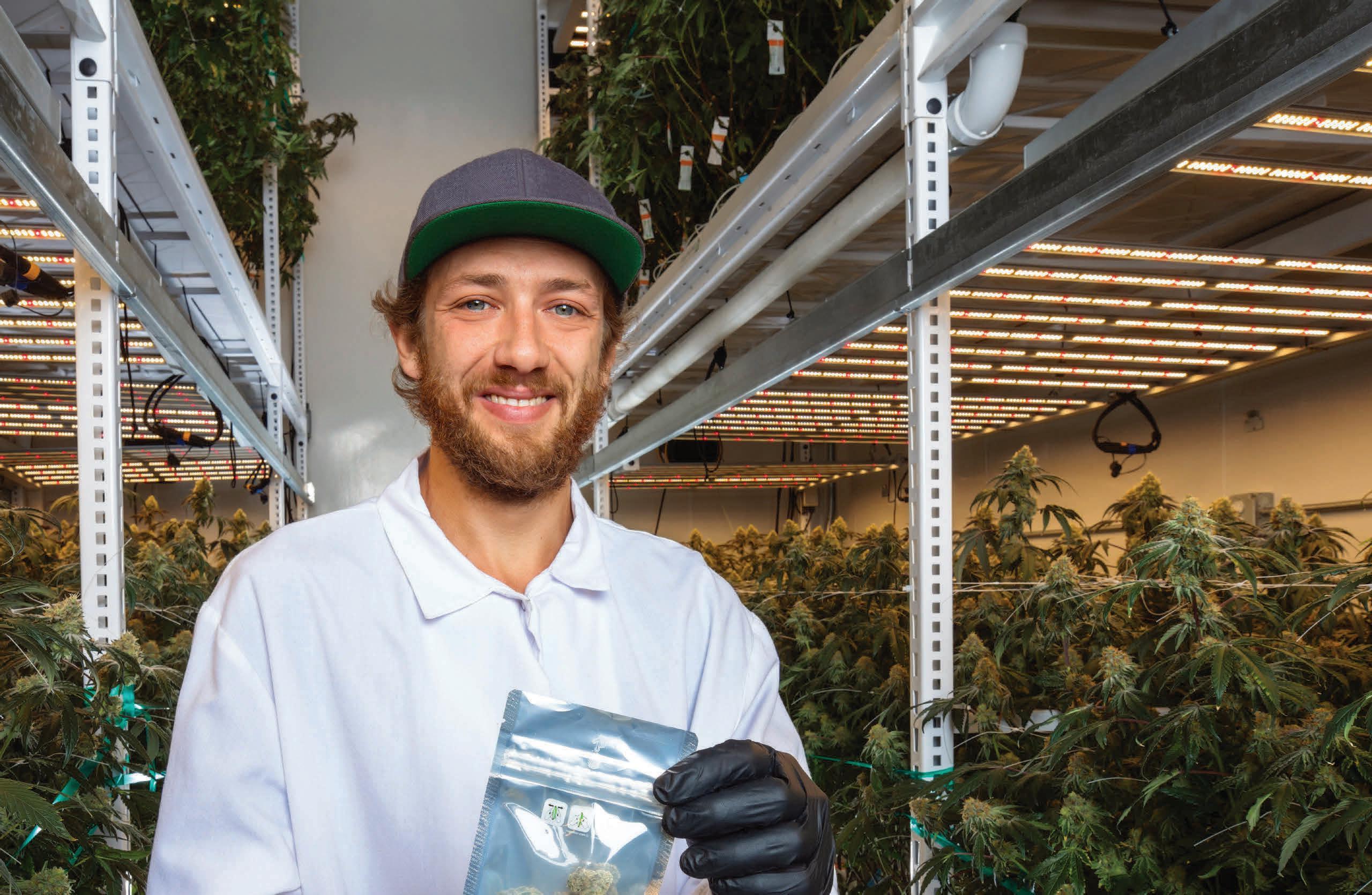
Business leaders in the cannabis industry say they trust the attorneys of Plunkett Cooney to help them secure and renew licenses, anticipate legal pitfalls and win in court. Grow your cannabis business with confidence. Get the Plunkett Cooney perspective.
n Business Transactions & Planning n Cannabis Law n Commercial Litigation
n Employment Law n Environmental & Energy Law n Government Relations
n License Applications & Renewals n Mergers & Acquisitions n Real Estate Transactions
n Regulatory Compliance n Trust & Estate Planning n Tax Law
ATTORNEYS & COUNSELORS ORNEYS AT LAW
J Jeffreffrey M. Sc y Schroder
Direct: (248) 594-2796
jschroder@plunkettcooney.com

Tonic products have a faster onset time than most other edibles because they are a water-based liquid made using a process called liposomal encapsulation.
This INFUSes WATER DROPLETS WITH CANNABINOIDS AT A MICROSCOPIC LEVEL AND .allows them to be QUICKLY absorbed into the bloodstream.

Tonic is GREAT ON ITS OWN OR MIXed INTO A MOCKTAIL!
LET’S MAKE A DANK-QUIRI
•Fresh squeezed lime juice
•Fresh strawberries
•Raspberry Lemonade
Tonic
•MIX IN A GLASS WITH ICE AND ENJOy!

7 FRUITASTIC FLAVORS!
MG THC TOTAL
100 0 ALCOHOL, so NO HANGOVERS!
































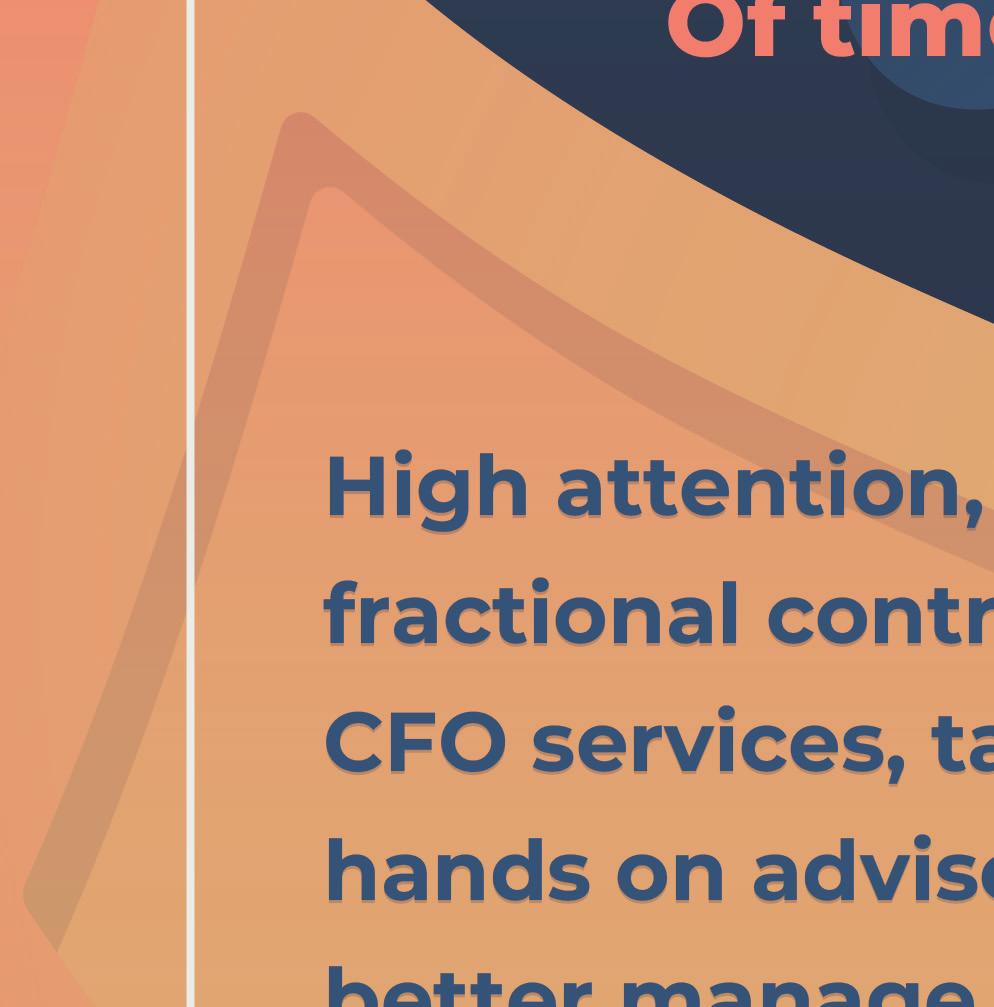







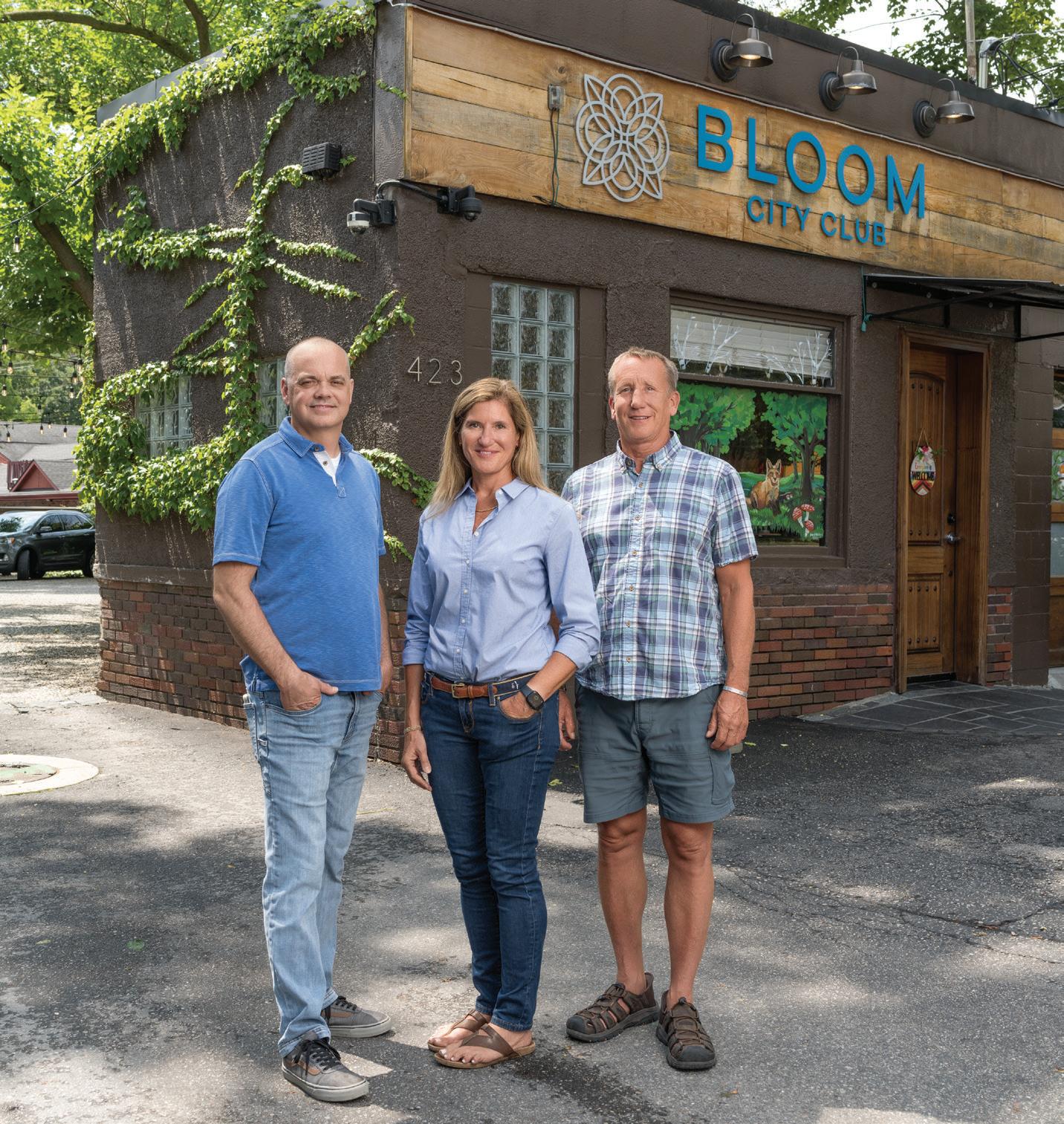



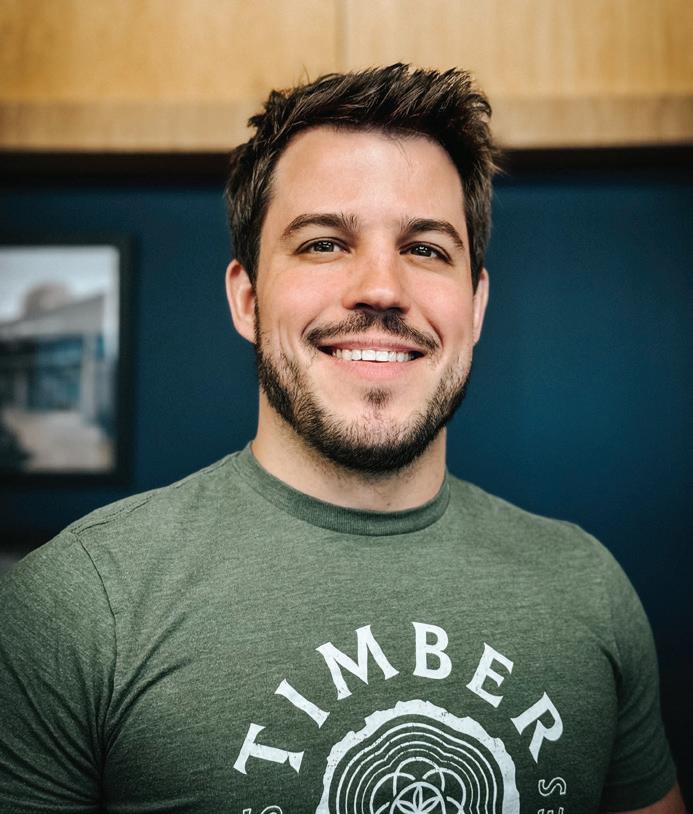













Aif you don’t live in one of the communities that will be voting on local cannabis policy this November, you nevertheless will have the opportunity to cast an indirectly pro-cannabis ballot. After all, you will have the chance to vote for individuals who are running to serve your community in specific roles or represent you at various levels of government. The winners’ stances on cannabis, in turn, could have big implications for your business.
Although we don’t endorse candidates for public office, we do our best to provide our members with the information they need to make informed decisions at the ballot box.
That’s why the MiCIA sent out a survey earlier this summer to the candidates running for the state and U.S. houses of representatives. We asked candidates five simple questions to gauge their positions on important cannabis business issues, rescheduling and descheduling, and expungement, and then we put together scorecards based on those results before the August primary. In preparation for the upcoming general election, you can read more about those results on page 40. Spoiler alert: Most candidates — Democrats and Republicans alike — scored at least a B. We still have work to do, but given that adult-use cannabis wasn’t even legal in our state just six years ago, those results are remarkable.
to legitimize our industry for years. Allison
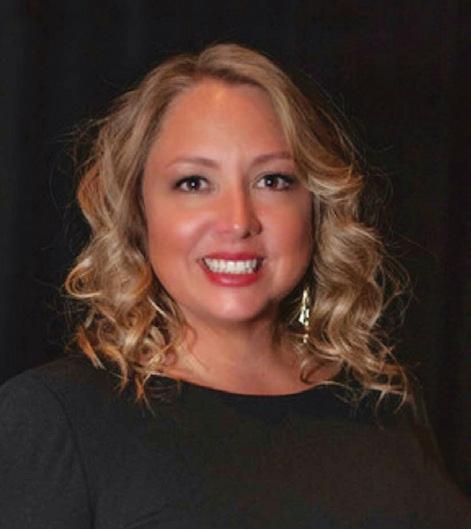
to legitimize our industry for years. Allison Ireton of Bloom City Club in Ann Arbor comes to mind. She co-founded Bloom City back in 2014, and in recent years she’s worked with owners Patrick Kinney and Craig Terrell to expand the business from one dispensary to four and add on processing and cultivation arms. We have the distinct pleasure of featuring Bloom City in our cover story this issue (page 14), and we also interviewed the leadership team there about how they’ve expanded successfully in Michigan. Allison, Patrick, and Craig have unique insight into what it takes to make it in this industry; turn to page 24 to get their tips as well as those of other thriving entrepreneurs. One of the keys to running any successful business is having a strong team. Attracting and retaining top talent is no small task, which is why we consulted experts in human resources, insurance, and the law to get their take on the value of offering competitive benefits to employees. Turn to page 34 to read more about the most sought-after benefits and why offering them could set your business apart as a good place to work.
As always, we at the MiCIA are here to support you on your journey in the Michigan cannabis industry. Don’t hesitate to reach out with any questions or concerns.
101 S. Washington Square, Ste. 820 Lansing, MI 48933 micia.org
FOLLOW US AND LIKE US
MiCIA STAFF
ROBIN SCHNEIDER
Executive Director robin@micia.org
KENZIE TERPSTRA
Membership Coordinator kenzie@micia.org
MICHAEL J. PATTWELL
Corporation Legal Counsel mpattwell@clarkhill.com
KEVIN A. MCKINNEY
Lobbyist kevin@mckinneyandassociates.net For
inquiries, email info@micia.org
PUBLISHING PARTNER
As I think about how far we’ve come, I like to reflect on the people who have been working
ANDREW DRIVER CHAIR Driven Grow
MARK PASSERINI VICE CHAIR Om of Medicine
DAVE KRAMER TREASURER Driven Grow
RAYMOND ABRO JARS Cannabis
Robin Schneider, Executive Director
JEVIN WEYENBERG Lake Effect
SAM USMAN PG Group
ALEX ADAMS Cambium Analytica
CALVIN JOHNSON Primitiv
JERRY MILLEN
The Greenhouse of Walled Lake
NICK AGRO High Level Health
GEORGE LYNCH Green Stem and Simplicity Farms
MIKE DILAURA House of Dank
BOB LANDAAL Total Health Collective
JACOB FEIN Tend.Harvest.Cultivate.
GENERAL MANAGER
Ed Peabody
MANAGING EDITOR
Emily Doran
SPECIAL PROJECTS EDITOR
Olivia Sedlacek
ART DIRECTOR
Mike Wagester
PRODUCTION MANAGER
Crystal Nelson
SENIOR PRODUCTION ARTIST
Stephanie Daniel
PRODUCTION COORDINATOR
Amanda Kozlowski
ADVERTISING ACCOUNT EXECUTIVES
Cynthia Barnhart, Karli Brown, Donna Kassab, Mary Pantely
CONTRIBUTORS
Eric Dick, Patrick Dunn, Kathy Gibbons, Paris Giles, Hailey Kasper, Kevin A. McKinney, Ulrich Reimann-Philipp, Wensdy Von Buskirk, Lauren Wethington, Brad Ziegler

Connecting with policymakers should be part of your business strategy. Here’s how to get started.
By Kevin A. McKinney
The Michigan Legislature is on its traditional summer break. Normally during this extended recess, legislators are at home doing significant “in district” work, focusing more on constituents and community affairs. While the senators are only in the second year of their four-year terms, members of the House of Representatives are up for reelection this fall. There are a few session days scheduled for the remainder of the summer, providing a short window of opportunity for legislation to move if critical or necessary, but otherwise, most legislative activity will wait for the lame-duck session in late November.
This long recess is a fantastic opportunity to assess your own relationships with your legislators. I have stated many times in previous articles, and at various MiCIA events, that you should never underestimate the critical importance of establishing strong connections at all levels of government, and this effort should be ingrained in your ongoing business strategy. This advice is based on my experience of over 40 years in the legislative and political arena. Let me put this in the simplest terms: Solid and trusted relationships with your policymakers, especially when you are in such a highly regulated and competitive industry, might be one of your most effective tools for success. Relationships often outweigh policy matters in the legislative process and certainly are more enduring than transactional support or the occasional “check-in” visit. So how are these relationships built, and how much of your time is really needed?
Most legislators are easy to reach. Their elected job is to represent their constituents’ interests. This does not mean they work directly for you, which is an inaccurate and politically antiquated way of thinking about how they work. With little effort, though, they
are easy to meet and get to know on a basic level. See the links to both the House and Senate websites in the callout to find out who represents you, as well as to the Legislature’s website, which provides a plethora of information on meetings, legislative activity, and more. Most legislators also have their own websites and Facebook pages, making it easier to track their efforts and activities. To really benefit, however, you’ll need to put in more effort to sustain these relationships.
Take the time to learn the backgrounds and priorities of your legislators, which committees they serve on, and which bills they have introduced. Naturally, you will connect better with your legislators if you are familiar with their efforts even when their areas of focus do not directly concern or interest you. Remember, cannabis might not be one of their priorities.
Attend coffee hours. Most legislators will post their scheduled district-held coffee hours on Facebook. These are small and casual gatherings for chatting with them outside of Lansing. It is entirely a different dynamic and one that you should take advantage of given the small time commitment

Kevin A. McKinney
these coffee hours take.
Attend one or more of your legislators’ local fundraisers. The ticket prices for most of these are modest since the events are geared toward constituents and not special interest groups in Lansing. Running campaigns and holding elective offices are expensive endeavors, unfortunately, and fundraising is an ongoing activity for these legislators. Support them financially at a frequency and level that are appropriate for you.
Invite your legislators and their staffs to tour your facilities. The physical and direct exposure to your business and facilities can have an impressive, long-lasting impact. During these tours, you could also carve out a few minutes for your employees to meet the legislators, which only furthers the exposure.
Invite your legislators to unique events that you might be sponsoring or hosting in the community, and then publicly thank them for attending. And you should be open to sponsoring events in the community that they might be organizing if they align with your marketing and/or general community relations efforts.
Always follow up any meetings or significant interactions in a personal nature. The handwritten thank-you note is more effective by far than the hundreds of emails your legislators receive, so take the time to pen one. You would be surprised — many legislators post these notes inside their offices.
Consider volunteering for campaign activities if the effort is small. Often, you will be canvassing at the doors with the candidate or their staff, or at the campaign office doing other campaign activities with the candidate and their family members. There’s no better time to foster a better impression than when you’re stuffing envelopes with the candidate’s spouse.
Learn more about your state legislators:
• senate.michigan.gov/FindYourSenator
• house.mi.gov/#findARepresentativeForm
• legislature.mi.gov


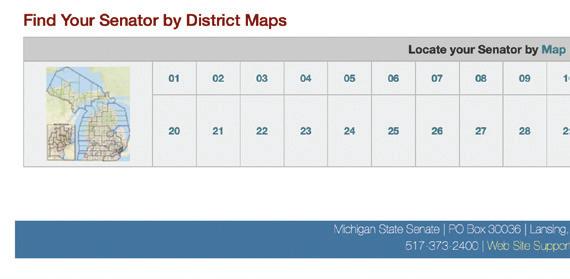


None of these efforts should be viewed as a one-time measure or individually sufficient for building a strong connection. To me, a relationship with your legislators is analogous to a marriage in that it is easy to enter but requires sustained effort and time to be successful in the long term.
In the highly regulated cannabis industry, you have relied on the MiCIA and the expertise of a variety of consultants — including lawyers, accountants, lobbyists, bankers, and compliance officers — to assist you in navigating the complicated regulatory framework. But many do not think of the importance of the state legislator who impacts the policies dealing with all facets of the cannabis industry in Michigan. Now is the time to get the policymaker on your team.
If you have any problems connecting with your legislators or have questions about how best to approach them, please do not hesitate to reach out to me at kevin@mckinneyandassociates.
net. I guarantee you, the effort you make will be impactful to both your business and the cannabis industry. The more engaged and enlightened policymakers are on cannabis-related issues, the more responsive they will be in helping to move the industry forward.
KevinA.McKinneyistheleadlobbyistfortheMiCIA.
Take your cannabis business to a new high by optimizing your financial services.

Community Choice Credit Union knows the cannabis industry inside and out, and we serve your whole business. We power the industry from seed to sale and beyond with Choice Cash Services:
• Dedicated, full-service cannabis banking team with one-on-one, 24/7 personalized support
• Best-in-class compliance support
• Secure and convenient cash management
• Complete banking services, including personal a nd business lending
• Experts with nearly five years serving over 550 cannabis related businesses
Our ability to connect you in the industry, is a competitive advantage to your business.
Contact our Lead Industry Experts today.
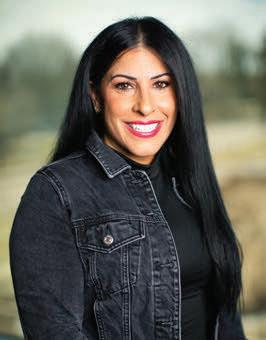
Donna Bashi, CBP™ Vice President of Business Development DBashi@CommunityChoiceCU.com
Dr. Jason J. Abate, CBPA™ National Sales Director JAbate@CommunityChoiceCU.com
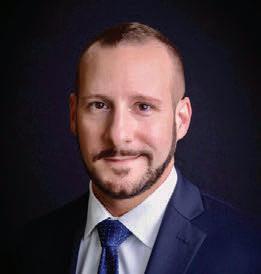




Ten years in, the homegrown company has multiple outlets and a thriving product line
BY KATHY GIBBONS // PHOTOS BY BRAD ZIEGLER

“My father said if there’s ever any opportunity that comes your way and people think you’re crazy but it’s catching on, you have to take that opportunity and run with it because those don’t come along every day.”
—Allison Ireton, Bloom City Club
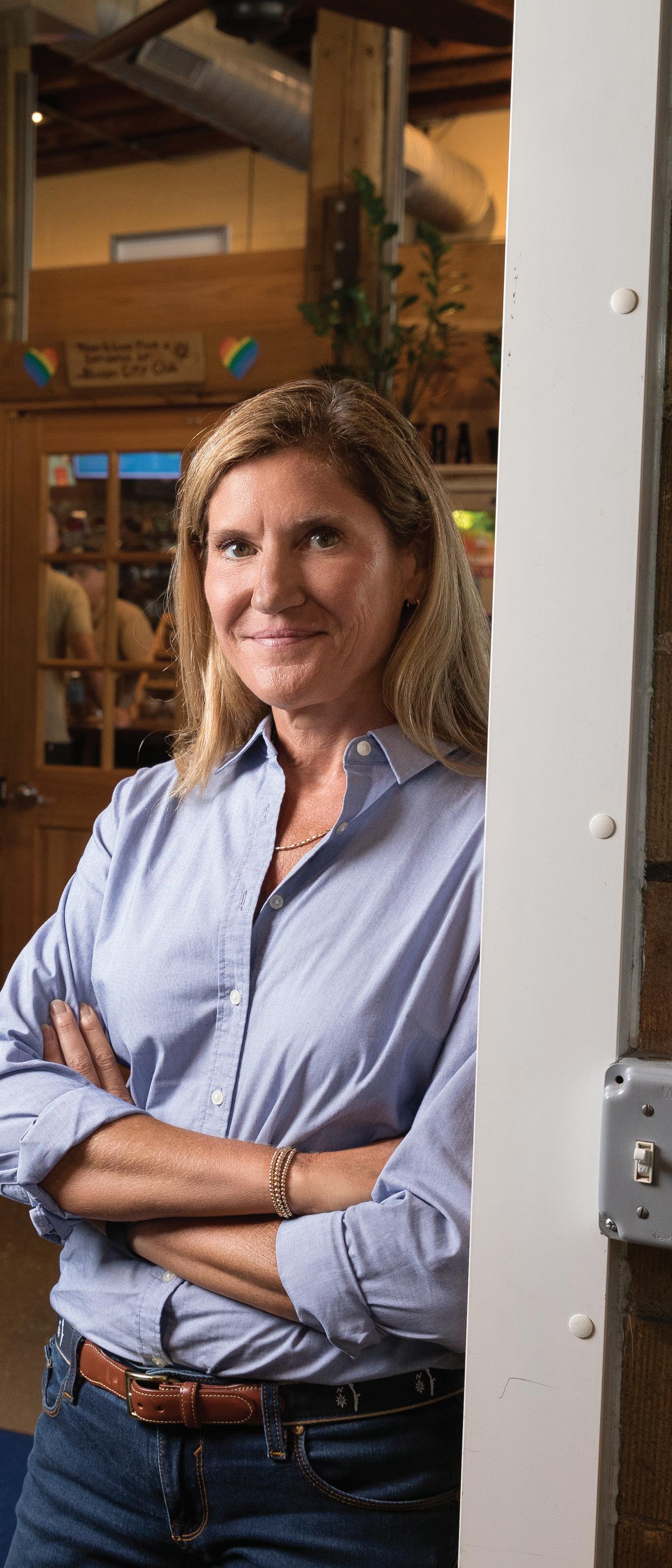




Allison Ireton likes to tell the story of her entrepreneurial father, who was in the frozen hamburger business in the late 1960s. It was a time when a lot of people were skeptical about the concept of fast food; accustomed to making meals at home, they saw fast food as a flash in the pan.
“He saw it differently and started a company that made frozen hamburgers,” she says.
“He serviced Burger King, Roy Rogers, Jack in the Box, stuff like that. He said if there’s ever any opportunity that comes your way and people think you’re crazy but it’s catching on, you have to take that opportunity and run with it because those don’t come along every day.”

That’s exactly what she did when she founded Bloom City Club with Dori Edwards in 2014. Patrick Kinney rounded out the team of co-founders in 2015.
“The long story short is I met somebody [Edwards] who was active in this space, one thing led to another, and it was luck,” Ireton says.
In 2018, the organization restructured to prepare for state licensing, with Craig Terrell and Patrick Kinney as licensees and Ireton as general legal counsel. They have more than taken advantage of the opportunities that have come their way since. Today, Bloom City Cub operates its original location in a tree-lined neighborhood in Ann Arbor as well as other outlets in Ypsilanti, Paw Paw, and Sturgis. The team also established the TreeTown brand, which includes gummies, baked goods, tinctures, and a trademarked product called Cannamelt.
The first opportunity that presented itself in Ireton’s journey into the cannabis industry came when she met Edwards, an entrepreneur buoyed by the legalization of medical cannabis in Michigan in 2008. They opened that first Bloom City Club location in a former auto body shop Ireton and Terrell (her partner in life and in the business) owned.
Ireton was primarily working as an attorney at the time and had been volunteering at the Washtenaw County public defender’s office. In her work there, she says, she saw clients get prosecuted for possession of marijuana in the county and face significant fines that led to jail time when they couldn’t pay. Meanwhile, in the city of Ann Arbor, the same offenses were ticketed as $25 civil infractions, she says. That disparity fueled her interest in cannabis reform. (That interest continues today — both Bloom City and TreeTown actively support the Great Lakes Expungement Network, a nonprofit dedicated to assisting people with criminal records take advantage of Michigan’s “Clean Slate” laws.)
State licensing didn’t begin until 2018, so navigating the way forward felt like the Wild West. Ireton soon realized that as an attorney, she would have to opt out of applying to be a licensee herself. Edwards

left the company in 2019, and Terrell and Kinney became the owners and licensees of Bloom City Club. Ireton no longer takes outside clients and instead devotes her time solely to Bloom City/TreeTown. Getting licensed paved the way for expansion, including the launch of TreeTown.
When TreeTown opened its 11,000-squarefoot facility in Jackson County’s Leoni Township in 2018, it was just the sixth licensed medical marijuana processor in Michigan, Kinney says. It currently operates with about 20 employees including sales staff; the entire operation, including employees at store locations, totals around 90.
“Certainly in the beginning, when we were one of the first, there wasn’t as much competition,” says Kinney, who spent about 20 years as an engineer in the automotive industry before co-founding the company. Today, he devotes all of his time to TreeTown. “There is a considerable amount of competition now.”
Kinney says TreeTown looks to the western U.S. for inspiration as it develops new products. “A lot of cannabis trends start from the west and move east, in the California, Colorado, Oregon areas,” he says. “That guided a lot of our decisionmaking, and it still does.”
TreeTown’s baked goods include brownies, cookies, and Rice Krispies–style

treats. The company employs a chef to help with recipe development.
TreeTown also trademarked a lozengelike product it calls Cannamelt, which comes in three flavors. “It’s very high dose,” Kinney explains. “A lot of high-dose users out there don’t want to eat an entire brownie or entire cookie. This is much, much smaller.”
On the “chewy” side, TreeTown formulates its gummies with various ratios of THC and CBD or CBN to provide different effects when used by consumers.
“Ours are mood based,” Kinney says. “For instance, we have one called Tranquil, one called Euphoria, one called Recover, one called Sleep. We’re coming out with
one called Focus and another called Energize. So the consumer can look at that package and think, ‘I need help sleeping. I’ll get the sleep ones.’”
Tracey Stevenson of Ann Arbor has been buying TreeTown edibles at Bloom City for about six years.
“I use the blackberry lavender gummies at night to help with sleep,” she says. “I used to wake up every hour, which was messing with me in so many ways. During the day, my favorite is melon Euphoria. It helps with the aches and pains I have, and it’s a mood enhancer at the same time, so I just do a small dose.”
Down the road, TreeTown expects to add a line of similarly experience-specific
vape cartridges. “We’re building out that line of products,” Kinney says. “We’ve got the mood-based gummies; we are also in the midst of launching a mood-based preroll. Our pitch is ‘Choose your mood, choose your mode’: You want to eat it, you want to smoke it, you want to vape it?”
TreeTown distributes its products for sale at as many as 150 outlets across Michigan, including Green Labs Provisions in Luna Pier. Chris Hansen, Green Labs’ general manager, has been buying from TreeTown since around when the dispensary opened more than two years ago. TreeTown products sell just as well as cheaper ones from other brands, Hansen says. “It shows they have a strong following

Growing Green will help you:
•Create a 5-8% higher valuation of your company
•Improve your strategic data
•Ease the management of your operations
•Save you money annually
•Put more cash in your pocket at tax time





































that keeps returning to buy their product.”
Going forward, Bloom City hopes to acquire a few more retail outlets. Ireton says they’re looking at individually owned shops that might be open to selling because they can’t take advantage of the economy of scale that is often required to make retail operations profitable. Ireton says that’s largely because of disparate tax treatment of cannabis businesses.
“It is a small-margin game with retail unless you have gigantic sales volume like you do in some of the Monroe border stores,” she explains. “It’s a lot of work to remain compliant and jump through all the hoops and pay all of the licensing fees. There’s a lot of work for not a lot of profit.”
Looking back at the past decade, Ireton says it’s been a wild ride — and that’s part of what she’s enjoyed.
“It was a different kind of business model back then when we were fighting for legalization and running this sort of tolerated-but-gray-market business that was open to the public but you’re not sure if what you’re doing is technically allowed,” she says. “Now it’s just different. It’s all out in the open. The rules and regulations are there to follow. Everybody knows what they’re supposed to do and plays ostensibly by the same rules.”









Strict regulations. Tax implications. Security procedures. Surging competition. It all requires a trusted partner with wide capabilities and a personal, customized approach. Our Cannabis Services Group brings a wealth of experience in cannabis, agribusiness, manufacturing and retail, making us uniquely qualified to help you navigate the complexities. Let us help you thrive.

Ann Arbor’s only microbusiness is making the most of its direct-to-consumer model
BY WENSDY VON BUSKIRK
Many Michigan cannabis players go for volume, stacking licenses to grow, process, and sell a huge amount of product, but an Ann Arbor microbusiness puts quality over quantity.
Winewood Organics grows, processes, and sells cannabis all on one site. The microbusiness license means founder Eric Parkhurst has control of every aspect of his cannabis, and he’s committed to making it the best it can be.
“People deserve to know what they’re consuming and how it was grown,” Parkhurst says. “We only sell what we plant, grow, trim, and pack with our own hands.”
Winewood’s cannabis is grown using what the company calls organic methods; from that, Winewood sells a variety of flower (its flagship offering), concentrates, edibles, and other products. In addition, Winewood is known for its bubble hash, handcrafted with old-school methods.
Parkhurst says he loves the personal nature of the microbusiness model. “I am able to work with customers and make product directly for them,” he says.
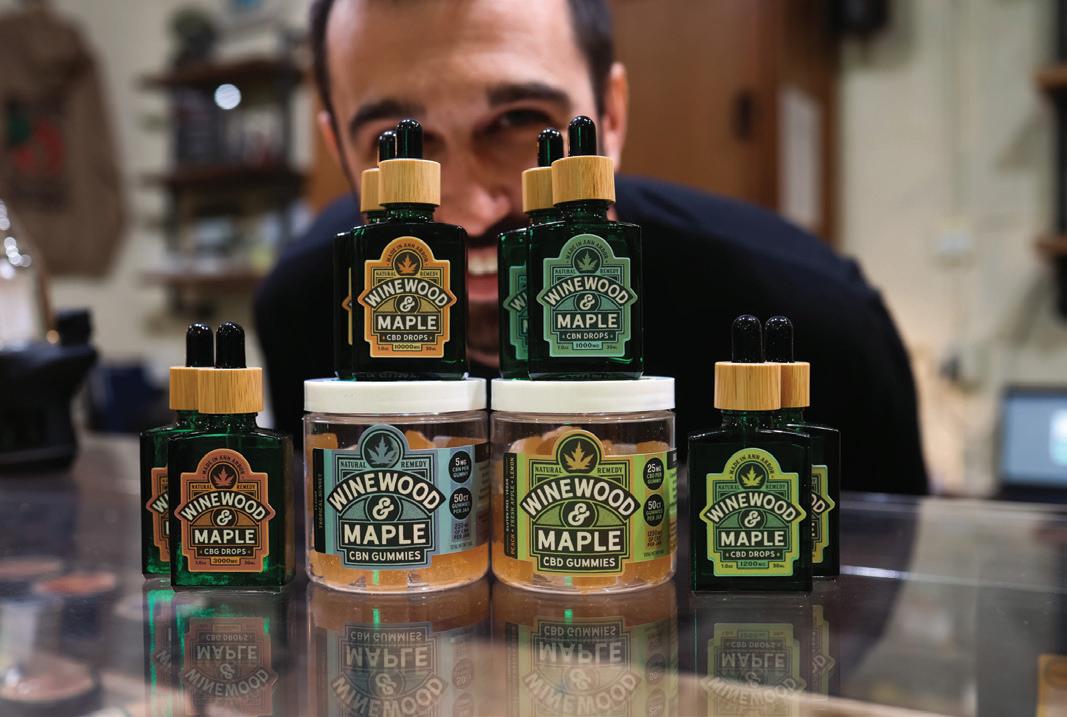

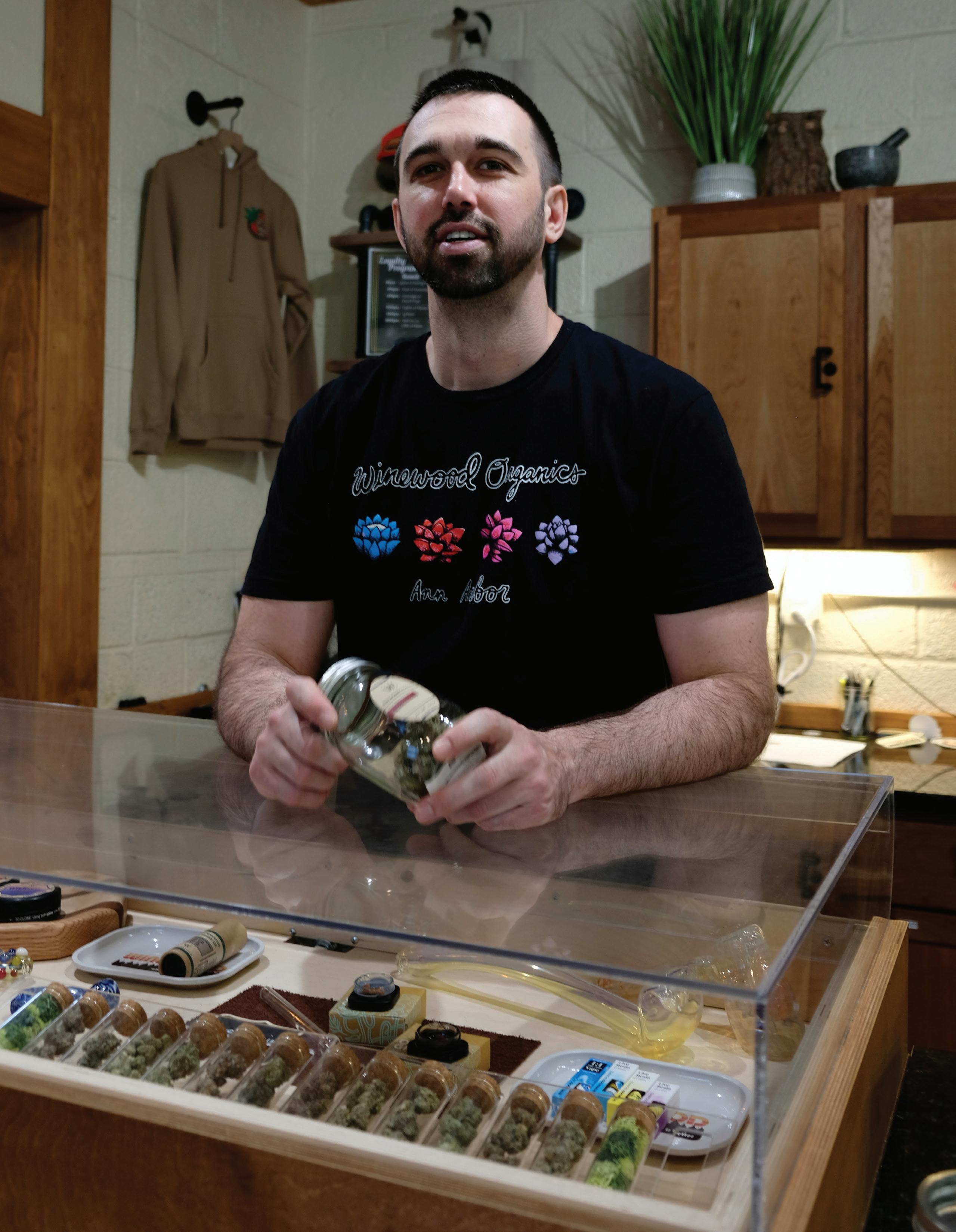
“People deserve to know what they’re consuming and how it was grown. We only sell what we plant, grow, trim, and pack with our own hands.”
—Eric Parkhurst, Winewood Organics
I find Ann Arbor’s only microbusiness tucked away on Winewood Avenue, a quiet enclave between Maple Road and Stadium Boulevard. As I walk up to the site, the vibes are more like those of a farmers market or health food café than a cannabis dispensary.
Rose bushes bloom up the side of the building. A red-and-white-striped food truck serves up Mexican fare in the parking lot. On the little front porch, a sign reads “Bicycle Parking Only” near a recycle bin that invites customers to drop off glass containers to be cleaned and reused. The facade is decorated with colorful botanical murals by artist Christina Smith.
Walking through the small front door is like entering a home, and after I show my ID, I’m led into a cozy little retail space with a rug on the floor and cabinets displaying the wide array of Winewood Organics products.
Parkhurst greets me and leads me past an employee break room and a security station to the back, where cultivation and processing take place. He reaches up to part some curtains, revealing a window into one of Winewood’s three grow rooms. Inside, plants are nestled in pots much bigger than I’ve seen in other facilities.
“They have to be that size because we use all living organic soil,” Parkhurst explains, adding that he used hydroponics until he experienced a
friend’s living soil–grown flower.
“No matter what I did, his always smelled and tasted better,” he says. “I think there’s something in living soil that brings out the natural flavors.”
Winewood avoids chemical pesticides and uses four types of beneficial insects to control pests. Plants grow on a staggered eight-week schedule with one small harvest each month.
“We’re on a perpetual cycle that allows us to keep our product fresh,” Parkurst says. “Plus, it spreads out the labor.”
During my visit, Winewood is growing 15 strains, including Durban Poison, Platinum Lemon Cherry Gelato, Papa Don, and Cap Seed Junky. “That’s a lot for us,” Parkhurst says. “Each cultivar has its own needs and challenges.”
Plus, he says, the cost of running each strain through required lab testing, then testing each product derivation, adds up. “It will cost us $2,500 to test this room alone,” he says, pulling the curtains closed. “Five thousand total if we make gummies.”
The back room is warm and humid, so Parkhurst and I go outside to finish our interview at a picnic table in a shady atrium. Parkhurst tells me he is originally from Minnesota but moved

to Michigan after medical cannabis was legalized here. He became a caregiver in 2013, and in 2021, he opened Winewood Organics.
Operating a microbusiness allows Parkhurst to interact directly with his customers and respond to their needs, getting an edge on the competition.
When people requested bubble hash, Parkhurst ordered “bubble bags” and got to work separating trichomes from flower in ice water with a paddle. Winewood Organics became one of the only places in town to carry it.
“We don’t have a big budget for marketing,” Parkhurst says, “but we listen to our customers.”
As of early August, only six microbusiness licenses were active in the state, per the Michigan Cannabis Regulatory Agency’s database. It can be a challenging license type. With cultivation capped at 150 plants, microbusinesses can run out of product and aren’t allowed to sell cannabis from other sources. As Parkhurst mentioned, testing

fees can have a great financial impact at a small scale. Plus, it’s a lot of work.
Parkhurst and his staff of six do a little bit of everything to keep Winewood thriving. Parkhurst is passionate about cultivation, while his childhood friend Marcus Huber is the facility manager. Isaac Steckler focuses on pre-rolls and processing; Joe Creasman-
Jones helps with gardening, packaging, and trimming. Karley Fisher works in the kitchen producing vegan, gluten-free gummies. Katie Maver, hired as a budtender, also helps with the plants, packaging, and kitchen work. Derek Oldham, a certified “ganjier,” is the lead budtender.
On my way out, I stop to browse Winewood’s retail area. Against one wall, shelves are stocked with hoodies and tees with Smith’s artwork, and unique glassware from Piranha Collective.
Winewood’s various flower, pre-rolls, tinctures, and hash products are arrayed in jars with earth-toned labels and wooden lids emblazoned with the company’s signature “W” logo.
Winewood’s clientele ranges from firsttime consumers and older customers with a lot of questions to young connoisseurs looking
for top-shelf boutique products. No matter where someone is on their cannabis journey, Oldham is here to help.
As a student in the Ganjier program’s first-ever cohort, Oldham traveled to Humboldt County, California, for training to discern terpenes and flavanoids like a sommelier who picks up different notes in wine.
Oldham unscrews the lid on a sample jar and invites me to smell Permanent Marker, describing notes of limonene and linalool. He smiles patiently as I inhale the complex scent, which evokes the living soil where the plant was grown, right here in this building, and the people who tended it with care.
The farm-to-table experience and customer service are what make Winewood special.
“We think of ourselves as your guide,” Oldham says, “giving you the tools and knowledge necessary to facilitate the experience you’re looking for.”


Financial Stability - Our programs are backed by carries with an A.M. Best Rating of A- or higher, providing your clients with peace of mind.
Experience in the marketplace - Introduced in 2015, our comprehensive Cannabis Program offers coverage solutions that have been tailored to the unique needs of the cannabis industry.
Coverage for everyone - We are proud to offer extensive coverage options tailored to every stage of the cannabis industry. From cultivators and processors to product manufacturers and dispensaries, we’ve got you covered every step of the way.

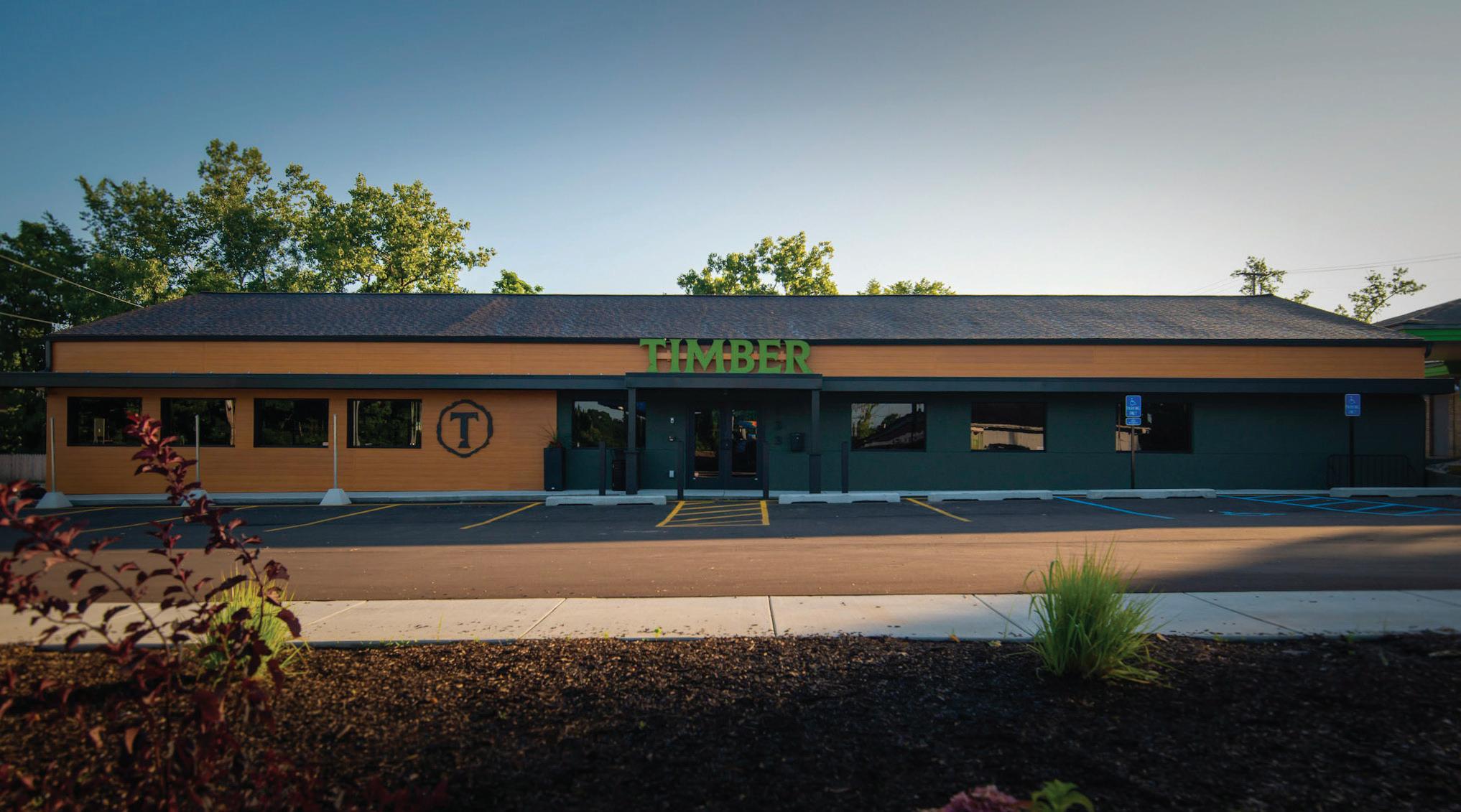
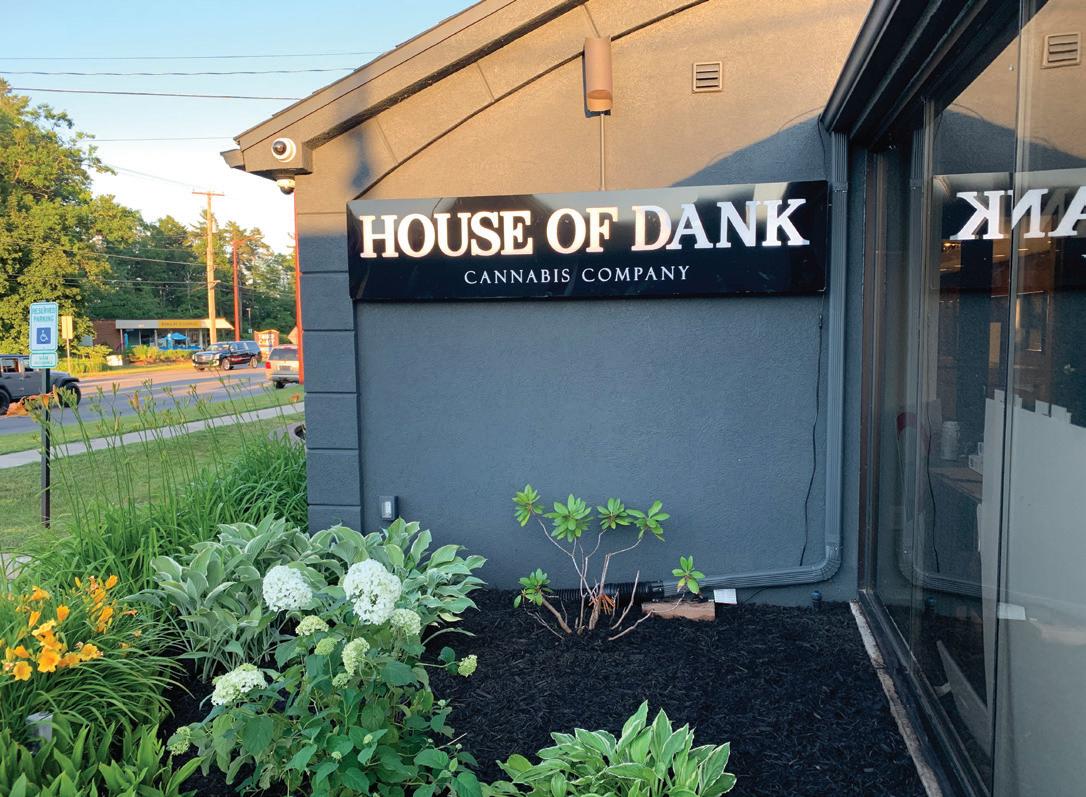
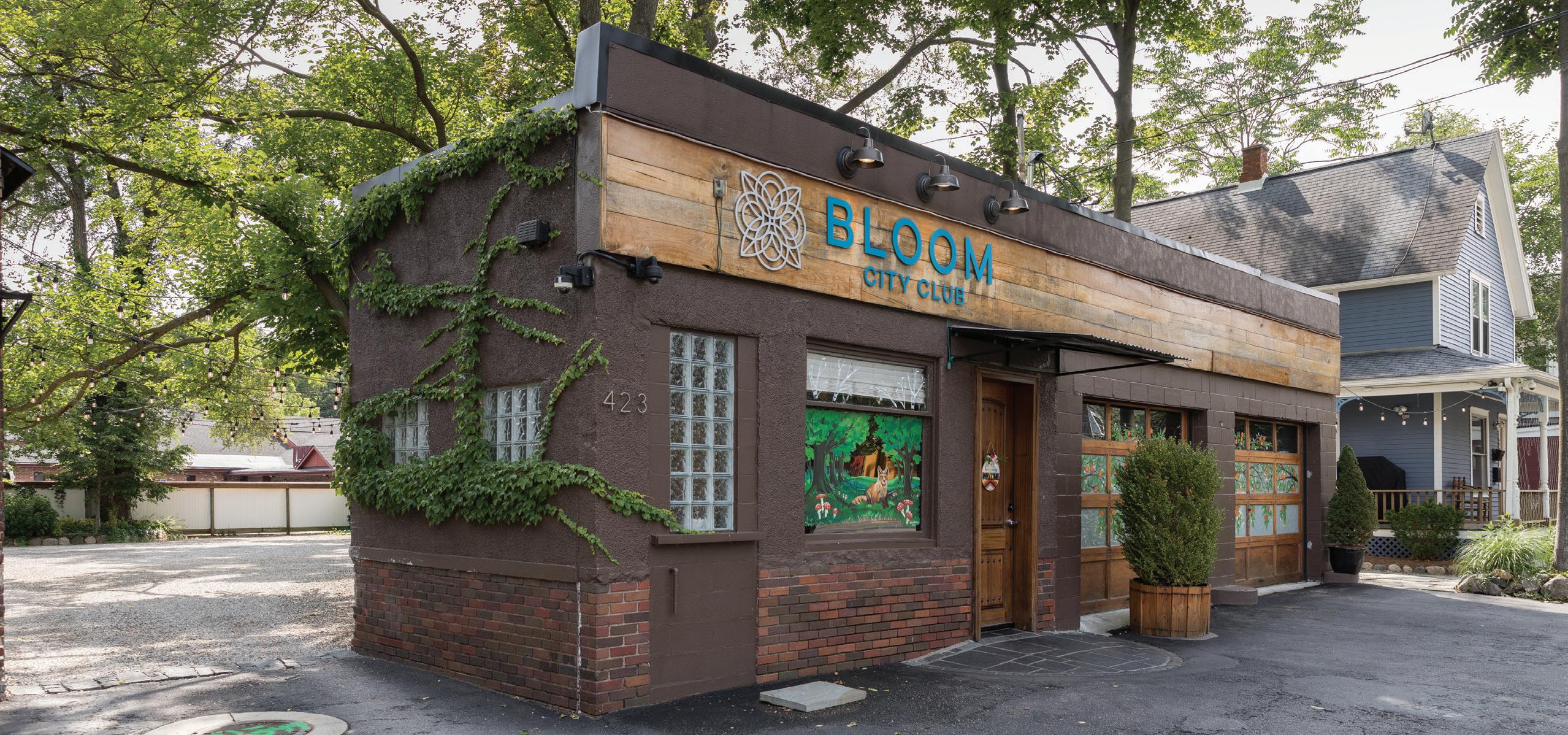
Industry experts weigh in on what it takes to grow your business the right way
BY PATRICK DUNN
Falling prices, business closures, and other recent shifts in Michigan’s cannabis indusry may leave some cannabis business owners hesitant to expand their operations. But Mike DiLaura, chief of corporate operations and general counsel at Madison Heights–based House of Dank, thinks it’s “always a good time to expand.”
DiLaura says the industry may not be the “field of dreams” it was five years ago, but he remains “bullish” on the Michigan cannabis market and says there is still “opportunity for smart operators.”
“If your fundamentals are solid, then believe in yourself, believe in your team, and keep pushing if you can,” he says.
We talked to DiLaura and several other Michigan cannabis operators who have expanded their businesses successfully. Here are their tips for fellow entrepreneurs looking to do the same.
Larger cannabis operators may have aggressive expansion plans built into their business models from the start, but for smaller operators like Bloom City Club, a slower, more thoughtful expansion might be in order. Bloom City co-founder Allison Ireton says she and co-owners Patrick Kinney and Craig Terrell have “bootstrapped” their way from a single dispensary in Ann Arbor to four retail locations, a processing facility, and a grow. She attributes their success to “dialing in on what [they] do best” and only taking on projects they could afford to fail.
DiLaura agrees that it’s important to make expansion plans carefully given the current state of Michigan’s market.
“As you enter, say, the Lansing market, and you are the 22nd dispensary to open, what’s your plan?” he says. “Because that’s radically different than whether you believed in Lansing in 2018. What is your differentiator? Is it prices? Selection? Is it branding? Are you in it for the long haul or the short haul? What are you trying to accomplish with that expansion?”
When you’ve answered those questions, you can “create your own luck,” Ireton says, by taking the time to network with other industry professionals who may know of expansion opportunities that are a good fit for your business.
“If you don’t make the effort to ask, you might be missing out on something that would be good for you,” she says. “You just tell everyone you run into, ‘Hey, I’m looking to expand. Do you know anyone who’s interested in selling?’”
2. CONSIDER HOW YOU WANT TO EXPAND.
Should your expansion be a retail, cultivation, or processing operation? DiLaura says that in the early days of Michigan’s adult-use market, common wisdom held that retailers needed to be vertically integrated to survive. But as product supply has grown and prices have fallen, vertical integration doesn’t make as much sense as adding retail locations. Terrell says Bloom City’s processing facility, for example, “would be struggling a lot more” now if not for the company’s retail locations.
Kinney says starting your own brand, using others’ cultivation and processing facilities, can be a good “hybrid” opportunity for retailers to expand.
“You don’t have to be so asset-heavy,” he says. “You can just get in there with some marketing and sales and pay a processor to do the heavy lifting and have the building and everything.”
For cultivators looking to expand, DiLaura says adding a retail operation can also be a sensible choice. A small outlet- or factory-type store can be a great way to take advantage of excess capacity.
DiLaura says an important concern when expanding is having the right team in place to support your new business.
“It’s more bandwidth than capital. Capital, particularly nowadays, while difficult, is out there,” he says. “But do you have the people that are ready to expand?”
On numerous occasions, he says, DiLaura has seen a great team broken up as part of an expansion, after which it’s hard to “recreate the magic.” He says it’s challenging — but also essential — to bring in enthusiastic new blood to keep your existing operation and your expansion going strong. As entrepreneurs add locations, he notes that it’s also important to add managers, human resources, and other administrative staff.
Staff may come with an expansion if you’re acquiring an existing business. But Matt Roman, director of government relations at Mount Pleasant–based Stash Ventures, which announced its acquisition of Cloud Cannabis earlier this year, says it’s still important to ensure a successful “melding of the cultures” in that situation.
“If someone’s been running the business for several years, they’ve got their own norms, routines, and policies,” he says. “Every business is different, so it’s just important to make sure everybody’s on the same page so you don’t run into problems later on.”




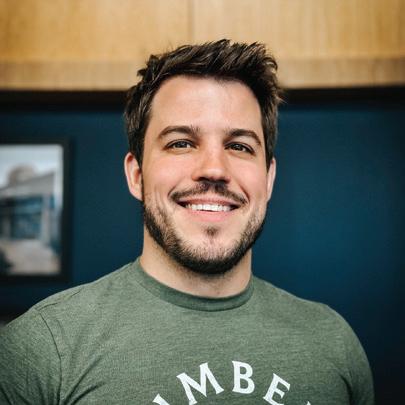
If you’ve found an expansion plan that seems right for you, the industry experts we consulted agreed that it’s important not to rush into it. Ireton’s top piece of advice is “don’t skimp on attorneys.”
“Don’t get your friend who’s a lawyer that does Medicaid applications to write your contract for you,” she says. “Spend the money on a contract attorney who’s done cannabis, not just gas and oil leases or something."
In an acquisition situation, Roman adds that it’s important to get a thorough grasp on why the sellers want to get out of their business.
“People want to exit for a multitude of reasons and life changes,” he says. “It could be the business isn’t performing as well, or the business is doing exceptional and they want to capture that and take their chips off the table at that point. But understanding each situation — the market, the business, and all that good stuff — [is important].”
MAINTAIN REALISTIC EXPECTATIONS.
So you’ve either opened or acquired a new location. The experts we spoke to say it’s important not to expect too much too soon. Kinney recommends having enough cash in reserve to last a quarter or so after you open your new operation.
“It does take time, even if it’s new or rebranded, to get people to come into your store, so have money for the long haul,” he says. “If you’re going in thinking, ‘Well, I’ll make a ton of cash in the first week or two, and I don’t have to worry about it,’ you may be in trouble.”
Terrell agrees that it’s important to “be realistic with your expectations for the future.” He notes that even a market that seems like a safe bet for low competition can change suddenly if the local municipality decides to offer more cannabis business licenses.
“A lot of it has to do with luck,” he says.

“It does take time, even if it’s new or rebranded, to get people to come into your store, so have money for the long haul. If you’re going in thinking, ‘Well, I’ll make a ton of cash in the first week or two, and I don’t have to worry about it,’ you may be in trouble.”
—Patrick Kinney, Bloom City Club
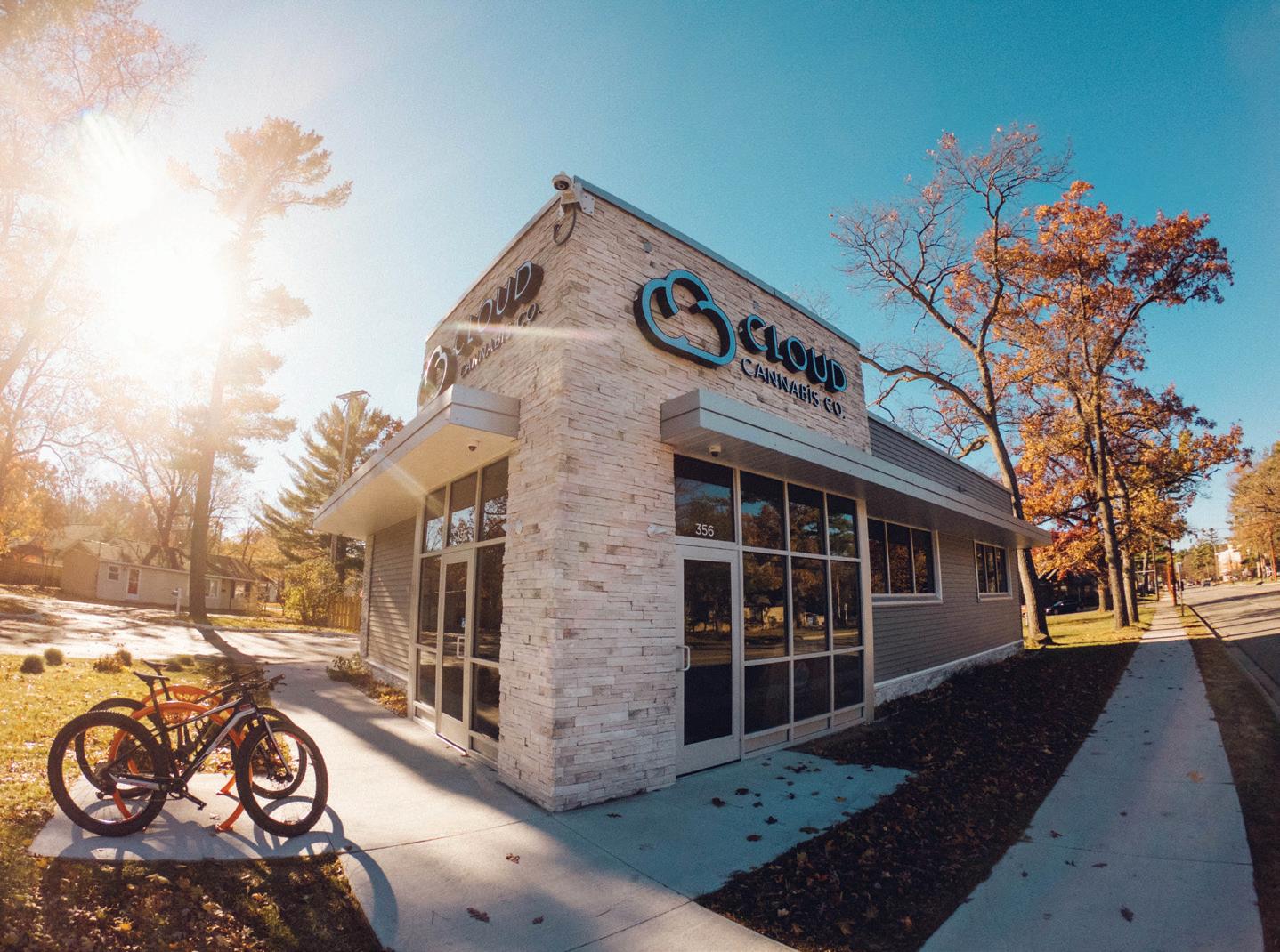

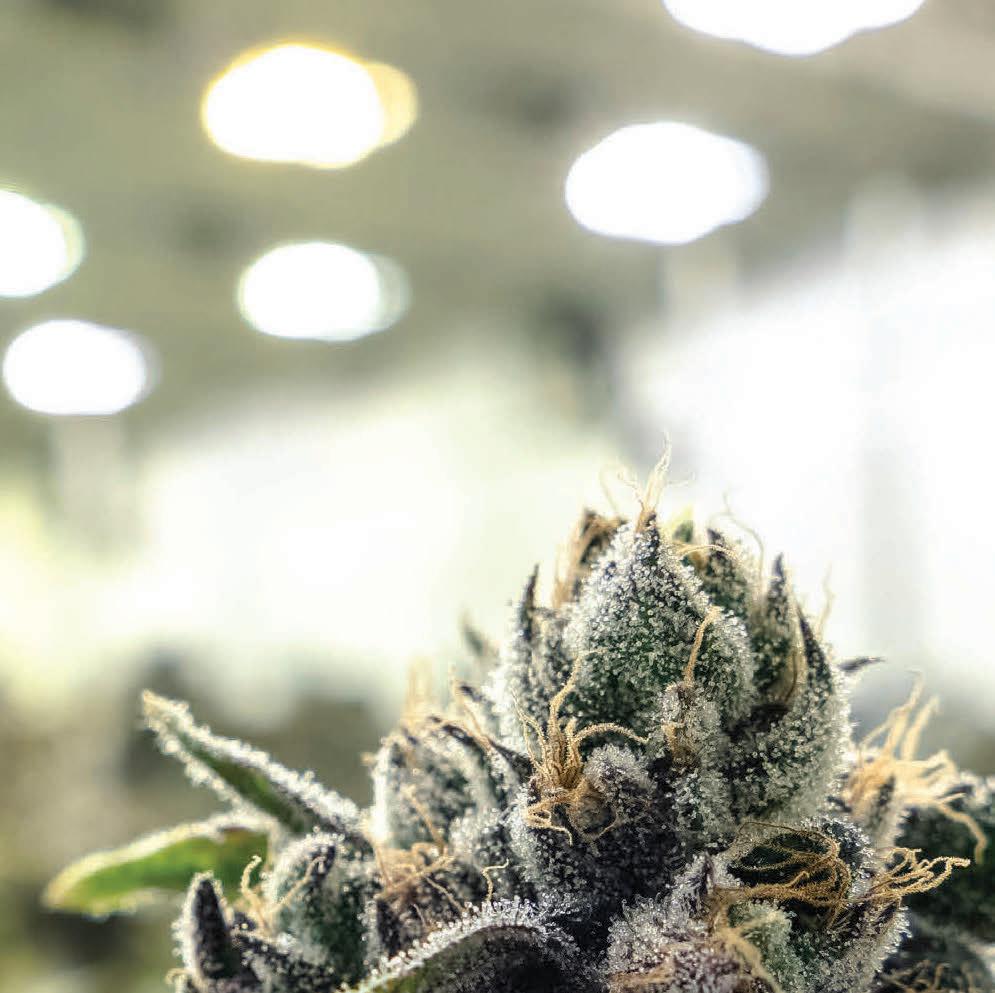




We focus on the kind of growth that doesn’t come from a seed.
Focused on your next move. Cannabis. It’s complicated. It’s capital intense. And it’s highly regulated. To focus on growing your company, you need a financial partner who understands state requirements, compliance issues and the unique landscape of the industry. As longtime members of the MiCIA, Maner Costerisan’s team of experts helps dispensaries, processors, secure transporters and cultivators across the state achieve their goals.
We assist cannabis companies managing the complexities of running multiple entities and provide CFO-level expertise to those looking to develop or execute buy-sell strategies. Our tech experts integrate cloud-based accounting financial software with your current systems –including seed-to-sale software — providing you with a new level of customized, real-time data, so you can make more informed business decisions. We know how to turn America’s new cash crop into a long-term plan.


Talk To An Expert:


























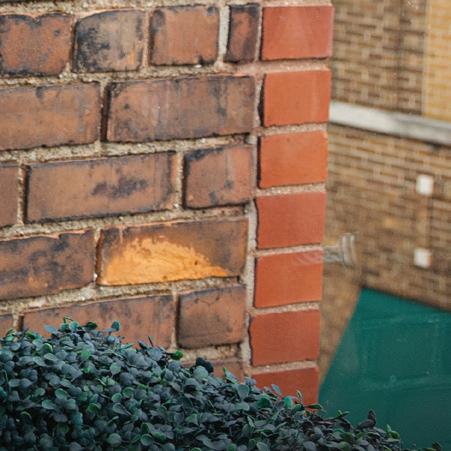











ALawyer Kim James is at the helm of the city’s up-and-coming adult-use scene. Here, she weighs in on the challenges and triumphs of her role.
By Lauren Wethington // Photos by Hailey Kasper







s a lawyer who has worked with the city of Detroit for more than 20 years, Kim James is no stranger to zoning laws, contracts, and regulatory compliance. Now, as the director of the city’s Office of Marijuana Ventures & Entrepreneurship — a role she took on two years ago — she guides the city’s distinct, social equity–focused cannabis program. James has a unique view of the up-and-coming cannabis scene in Detroit, which has granted 70 adult-use retailer licenses so far, 37 of which have gone to social equity applicants. This interview has been edited for length and clarity.




The Office of Marijuana Ventures & Entrepreneurship is an office of the Civil Rights, Inclusion & Opportunity department for the city of Detroit. It was mainly placed in that department because of the social equity aspect of what we do, because that’s one of our main missions. So it’s more than just overseeing the licensing — it’s overseeing our social equity program as well.
“We want everyone to be on our team. We’re trying to make it work for everybody.”
It’s important to distinguish that because social equity is not defined the same everywhere. In Detroit, we define it as that you live in a disproportionately impacted community, and that’s what we used as criteria for being eligible for an equity license. Our definition of a disproportionately impacted community is one in which the conviction rate for marijuana-related offenses is greater than the Michigan median, and where the poverty rate is over 20%.
That is serious to us, especially the disproportionate conviction rate, because it was shown that in Detroit, residents were 30 times more likely to be convicted of a marijuana crime. It was really important to us to make sure that when we got into this business, the people who suffered under that were going to be able to benefit, at least to the extent we could legally.
I love the city; I’ve worked here for a long time. I really like public service and working with the community and helping people.
I like to say that the best part about my job is I get to help people make their dreams come true. Because they’re so passionate about this, and they really want to do it. That is really rewarding, and especially the social equity aspect.
I’m a lawyer, so very dry work; contracts, real estate — that’s what I did before. So it’s really exciting to go and see people’s businesses. We go on tours a few times a month of growers and new retail, and it’s really cool to see how people are developing their business.
I’m also excited because every grow is a little different, and they all have different methods. People have invented things that are unbelievable. We went to one place where the proprietor had gotten a packaging machine from a potato chip factory. And he has the weed coming down, it goes into these bags, and it packages it up really quick. It was really innovative.
The first thing that’s really challenging right now is the dealing with illegal operations and things like that. There are a lot of illegal grows and retail sites. We just had the Movement Fest downtown, and there were giveaways all over the place. I don’t know if they’re licensed or not.
The Detroit Public Schools Community District has had a lot of problems with kids possessing cannabis, and the products they show me are not sanctioned. They’re illegal products, and we’re finding they’re being sold by gas stations and smoke shops. All of that is really hard to capture. It’s also not necessarily my job to do that, but we often have people come to us like, “What are you going to do about this?”
I got in the mail this flyer from an out-ofstate company that’s selling what it says are federally legal, hemp-based products. But we don't know what it is, especially gummies and all this stuff that you can order through the mail, and anybody with a kid can get that. That’s very challenging, especially because they look to the license regulators to be able to fix that, when it’s just something out of my control.
The other challenge is we’re compliance people, so we have a robust renewal process and we had all these social equity requirements for people to get licensed.
The people who have to comply with those requirements don’t always believe that they should or have to. There are so many ways that they can try to get around these requirements; it tends to get really complicated. So you’re fighting against the mentality of “I shouldn’t have to do this anyway, so I’m going to do whatever I can to get around it.” We’re actually retaining some additional consultants and attorneys to help us with this. The integrity of the whole program is based on this component. If we just let it dilute and let them not really comply, then it’s like we’re not accomplishing anything. And they just often don’t see it that way.
We’re only in our second year of regulation, and so right now we're trying to emphasize how important it is instead of being very corrective about it — to get people engaged and on the same team as us, wanting to help the community. We want everyone to be on our team. We’re trying to make it work for everybody.
WHAT ADVICE DO YOU HAVE FOR ASPIRING ENTREPRENEURS IN DETROIT’S CANNABIS SCENE?
It depends on what kind of aspect you’re interested in. Retail is pretty saturated right now. We have enough people doing it that aren’t thriving yet. My support is always going to go to the currently operating businesses and the ones that have not even opened yet but have gotten approved. If you own property and it’s in the right zone and you want to be a landlord, that’s a great way to make money. If you have a brand, there’s a way to work with a licensed processor to get your products on the market. It’s not necessarily the most lucrative thing, but it’s a good place to start.
The business that I don’t see very often is transporting. That’s just logistics and having some trucks, and you just have to follow the rules. And every one of the cannabis businesses has to use it. So that seems like an opportunity to me.
Where I’d like to see more growth is in processing, especially in the city. We’re trying to create and assemble all the brands that come from Detroit, in Detroit. We have a bunch of grows, but processing that into products that we can push I would love to see.


“The best part about my job is I get to help people make their dreams come true.”

By Ulrich Reimann-Philipp, Ph.D.
Hop latent viroid (HLVd) was first identified as the cause of “dudding disease” in California in 2019, and recent surveys indicate it affects at least 90% of California and two-thirds of all U.S. cultivation operations. Resulting losses for the U.S. cannabis industry are estimated to be $3 billion to $4 billion annually.
Several properties of HLVd make its detection and control challenging. However, much has been learned about the pathogen in recent years that allows for optimism that minimizing crop losses is possible.
HLVd consists of a small, circular RNA molecule that does not contain any readable genetic information. Like viruses, it does not live and depends entirely on the host cell’s metabolism to multiply. Infected cells produce millions of copies of the viroid, which weakens the plant, resulting in reduced yield and quality of the crop.
The most common symptoms of HLVd are stunted growth, horizontal branching, brittle branches, and poor rooting of clones. Discolored and deformed leaves can occur in later stages of the disease. Visible symptoms of HLVd often appear only after flowering has been induced. Vegetative plants, including mature mothers, often cannot be distinguished from healthy plants. The symptoms can also have causes other than HLVd.
How HLVd is transmitted from plant to plant and how it spreads within infected plants is not completely understood. However, transmission through plant sap and through cloning from infected mother plants has been shown conclusively. HLVd can also be transmitted through runoff from
infected plants to the roots of healthy plants. Hydroponic cultivation setups that recycle their irrigation water are especially susceptible to waterborne infection. Seeds from HLVd-infected plants often grow into infected seedlings. HLVd has been detected in insects feeding on infected plants, but transmission in those instances has not been proved experimentally yet.
The only reliable detection of HLVd is via quantitative reverse transcription polymerase chain reaction (RT-qPCR). This assay is highly specific and can detect even very low amounts of viroid RNA. The test is available from several testing laboratories in the state, but in my experience, acquiring a qPCR instrument is an excellent investment for any large-scale cultivation facility. Preventing even a 20% loss of any harvest can pay for the instrument and reagents.
How HLVd is distributed within plants depends on how and when they become infected. Tissue-cultured plants and regular clones usually test positive in the leaves before the roots. In infected mother plants and plants in the vegetative stage, root samples often test positive even when one or all leaf samples test negative. HLVd appears to spread through the vascular tissue like many plant viruses, traveling from the infection site to the roots and then upward to the leaves with the flow of nutrients and sugars.
I have used a virus/viroid multiplex assay in my tissue culture work. The assay can detect HLVd, lettuce chlorosis virus, and cannabis cryptic virus in the same reaction. Up to eight leaf punches or four root clippings from around the plant can be combined in one
sampling tube. The only sample preparation is a simple, 25-minute lysis protocol. Up to 94 samples and two controls can be processed simultaneously. The RT-qPCR reaction takes less than two hours. The reagent costs can be decreased by reducing reaction volumes and grouping samples. With the demand for COVID-19 tests declining, used qPCR instruments are available at a lower cost.
In-house qPCR allows for instantly viewing the fluorescence curves generated by the reactions. Inconclusive results can be identified and samples rerun as necessary. Relying on
Symptoms of HLVd:
stunted growth
horizontal branching
brittle branches
poor rooting of clones
discolored and deformed leaves in later stages of the disease
reported Cq values can produce falsepositive and false-negative results depending on how the baseline is set. RT-qPCR results from plant samples are not quantitative because the leaf punches and root clippings differ in weight and the viroid is not evenly distributed. I have found that viewing the fluorescence curves is the most reliable way of calling positive and negative results.
I have used tissue culture to produce and maintain a collection of “stock” or “master” mothers that represented a portfolio of production and tester strains. This minimized the risk of transmitting diseases and pests from one cloning cycle to the next.
Tissue culture can also reverse epigenetic changes (changes in gene activity not due to changes in the DNA nucleotide sequence). Restoration of a strain from an infected mother through tissue culture is possible by exposing the cultures to antiviral agents or high temperatures.
Hygiene procedures, such as wearing scrubs and designated shoes in the cultivation area, changing gloves between plants, and sanitizing pruning and sampling tools, are necessary to prevent the introduction and spread of HLVd. In my experience, soaking tools in 10% bleach has been very effective in preventing viroid transmission.

One can assume that any plant material from outside sources is potentially infected. Quarantine and repeated RT-qPCR testing are essential for protecting the operation.
HLVd is here to stay, and controlling it will remain an ongoing part of cannabis cultivation. Crop losses can be prevented or minimized using available tools, such as tissue culture, RT-qPCR testing, and proper cultivation practices.
UlrichReimann-PhilipphasaPh.D.inplant biologyandextensiveexperienceinthecannabisindustry.HeisamemberoftheMiCIA’s Scientific Committee.
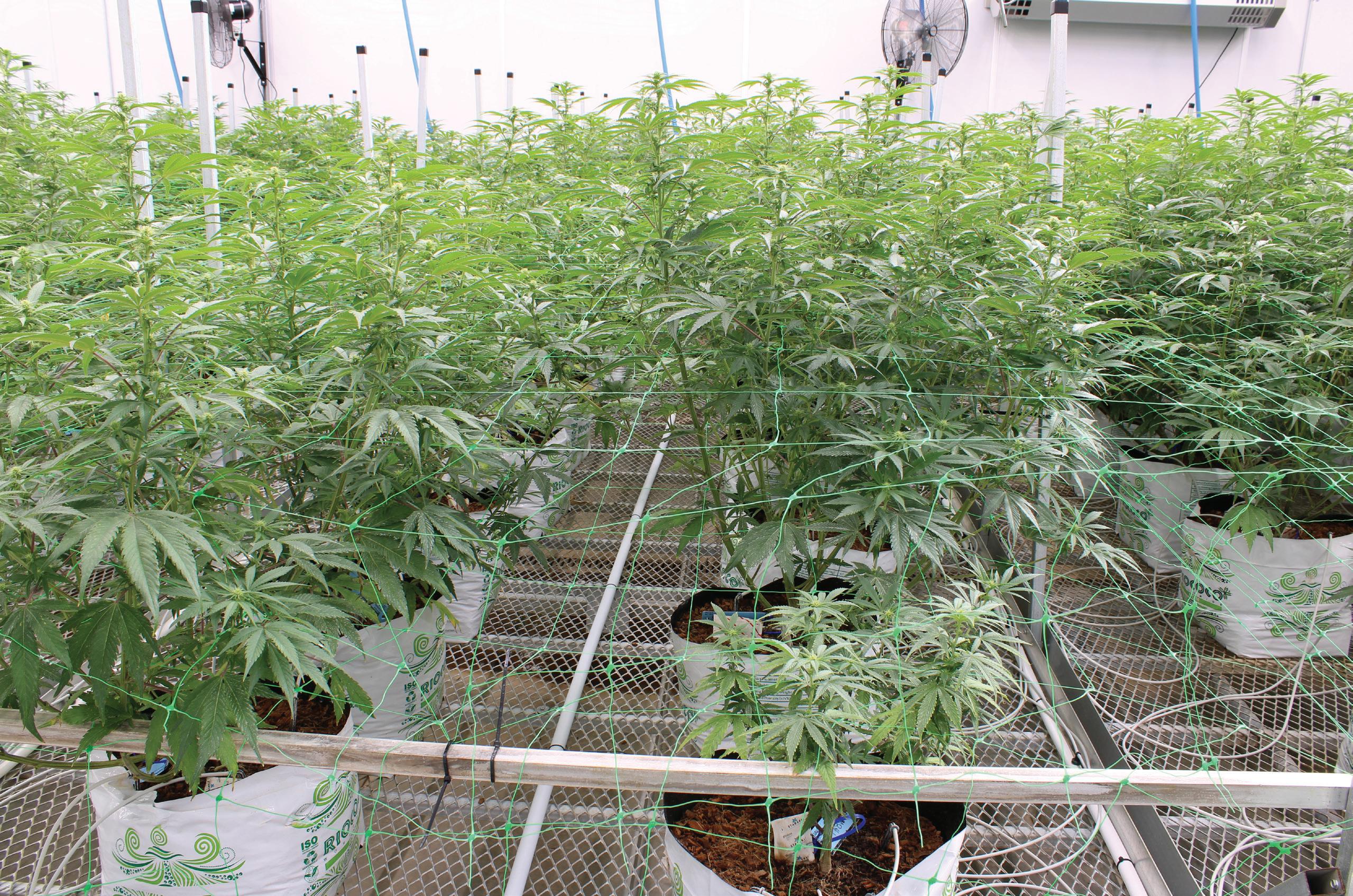
Offering health insurance, retirement plans, and other perks could make all the difference for retaining good employees in a competitive industry. Here, benefits experts offer their pointers.
By Eric Dick
In a work environment with low joblessness, two types of employers exist: those who offer benefits and those who don’t. This dichotomy inevitably affects the Michigan cannabis industry.
Michigan’s seasonally adjusted unemployment rate was 4.1% in June, the 32nd consecutive month under the roughly 5% “full employment” threshold. Even if they aren’t familiar with the details of such economic data, employers know what the numbers mean: Hiring and retaining good workers is profoundly difficult.
Providing benefits can help tip the scale, but for an industry struggling with tight
margins, costs can be an obstacle. However, benefits experts say, understanding what your employees need, shopping around, and thinking creatively can go a long way in keeping costs down while attracting and keeping high-quality employees.
Consider health-related benefits, the type most selected by employers as “very” or “extremely” important yet again in the Society for Human Resource Management’s 2024 employee benefits survey of HR professionals nationwide.
“People think to attract and retain people, they really need to offer a gold or a platinum type of health insurance,” says Jasmine
Piggott, a vice president with Marsh McLennan Agency, which has cannabis industry clients in Michigan. “But the reality is that’s way too much insurance for 99% of the world, right? Ninety-nine percent of the world do not meet their deductible. They don’t have procedures done every year. They’re not hospitalized every year.”
She draws a comparison to car insurance. How much insurance do you need? “It’s not meant to pay for the oil changes, right?”
Health insurance could be considered the most crucial and the most basic of potential

benefits (and it’s a requirement if you have 50 or more employees), and affordable options exist. Offering a high-deductible plan coupled with a health savings account, for instance, may be a cost-effective approach.
Insurance agents say a good first step is to understand what your employees need, particularly workers in the cannabis industry, who skew younger and whose health insurance needs may differ from older workers’.
Michael Stein, who operates an insurance agency in East Lansing and counts cannabis companies among his clients, says agents should keep employees’ needs in mind when they work with employers on selecting a health plan. If an employer switches to a network that doesn’t include a specialist an employee sees, for example, that could cause a big problem.
“Not paying attention to those details could adversely affect one of your employees,” Stein says, “and good employees are really hard to find right now.”
Craig DeMarco, an employee benefits producer for The Roots Insurance out of Troy, which also offers services to cannabis companies, concurs: He says his firm sends out an anonymous survey to an employer’s workers to see which benefits matter to them.
“We know hourly employees are going to go across the street and work across the street for 50 cents more an hour and not even concern themselves with total compensation or anything like that,” he says. “So it’s more of looking at the higher-level employees. … How do we keep them happy, and how do we grow our business? Adding benefits to that mix is something that can definitely do that.”
No-cost telemedicine for employees is highly desired, he says — and it’s a cheap add-on for employers. “Everybody really likes the no-cost telemed stuff,” he says. “It’s not expensive, and they’re utilizing it.”
Another approach that can help employers with a small workforce save, DeMarco says, is using an individual coverage health reimbursement arrangement, which is exactly what it sounds like: Employees secure their own coverage, and employers provide
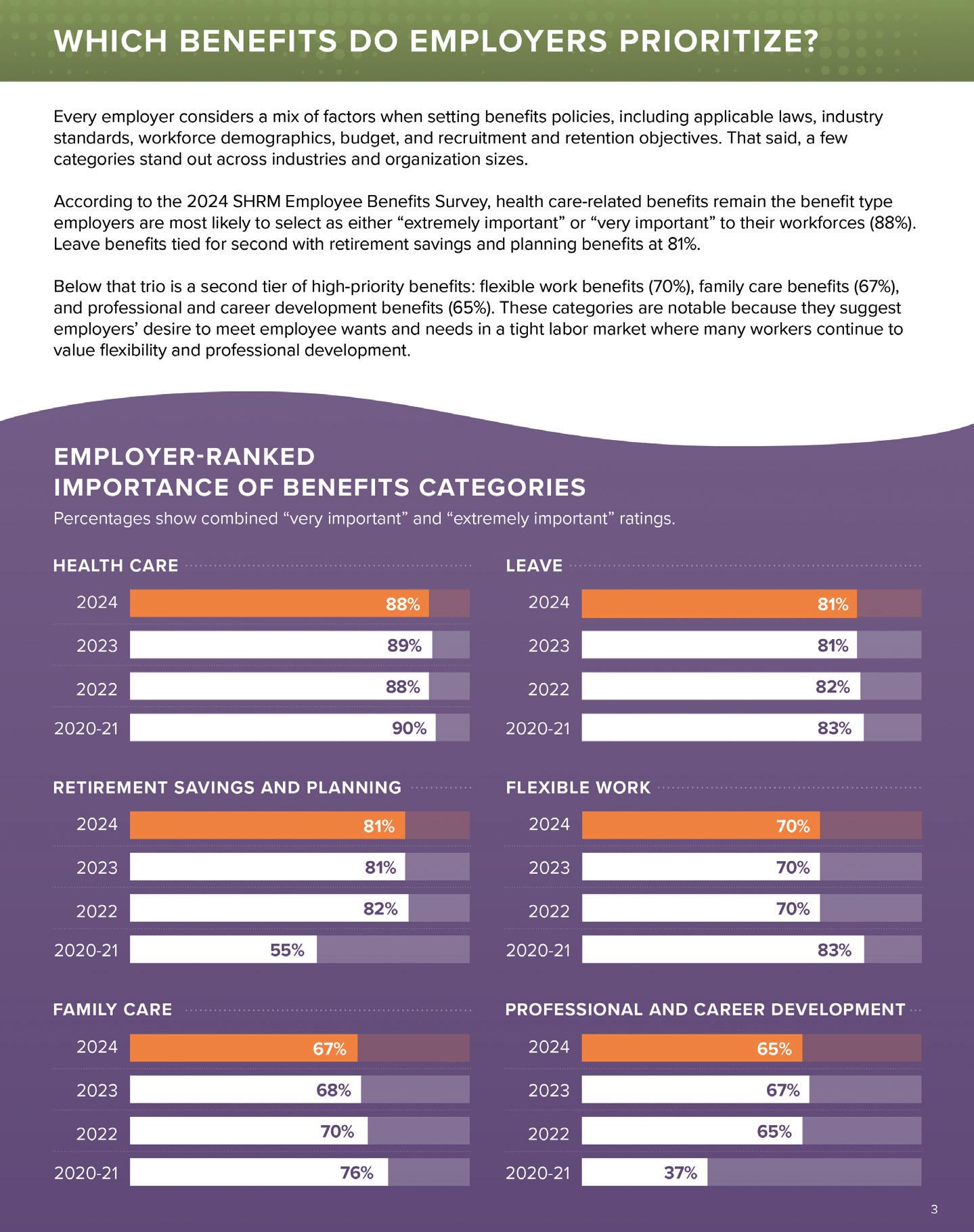
them with set reimbursements for qualified medical expenses.
Dental and vision can be reasonably inexpensive add-ons, says Quintin Meek, cannabis practice lead for insurance brokerage AssuredPartners, which operates an office out of Royal Oak. From there, employers can explore ancillary benefits such as short- and long-term disability.
“You’re going to set yourself apart if … you’re covering the lion’s share of the health premiums and leaving a little bit of financial capability for the employee to pick
up some of those ancillary lines on their own,” Meek says.
After health insurance, one of the benefits most selected by respondents as “very” or “extremely” important in the human resources survey was retirement savings and planning.
Some uncertainty lingers, however, about whether cannabis companies can or should offer 401(k) plans.
Kirsten Curry, an attorney and the
founder and CEO of Seattle-based Leading Retirement Solutions, can clarify: “There’s nothing in the Internal Revenue Code or any of the other regulations that would prohibit a cannabis enterprise from sponsoring a retirement plan.”
That’s not to say obstacles don’t exist. She likens the situation to the banking industry’s cold feet toward working with the cannabis industry. Cannabis employers that provide 401(k)s can expect additional costs related to compliance requirements, Curry says. And finding a willing 401(k) provider can prove challenging.
“There are oftentimes a number of different service providers to a 401(k) plan,” she says. “And some more readily say, ‘Yes, we will support a cannabis 401(k) plan.’ There are other service providers to the 401(k) industry that have just largely said, ‘Absolutely not.’”
Curry encourages employers to seek out agreeable retirement plan providers but to ensure those providers are public in their position and not providing services to the cannabis industry under the radar. What no one wants is someone in a provider’s legal department later raising questions
and forcing an employer out of the plan. “That’s not good for the cannabis company and their employees,” Curry says. “It’s not good for the 401(k) industry.”
Tax credits and deductions may be available to cannabis companies that sponsor a 401(k), she adds, and that can help defray some of the costs.
Despite the challenges, offering a 401(k) plan is worth it, Curry contends: “Weigh the pros and cons of the cost of offering a 401(k) plan to what are the outcomes of offering that plan to your workforce. Employee attraction and retention is one of those side outcomes.”
Beyond the big-ticket items such as health insurance and retirement plans, other benefits exist that are welcome avenues amid concerns about the bottom line.
Employee discounts can be an additional perk, says Yvette Lee, an HR knowledge advisor at the Society for Human Resource Management. Employers can reach out to other employers to get discounts on movies, meals, gym memberships, or cleaning services, to name a few.

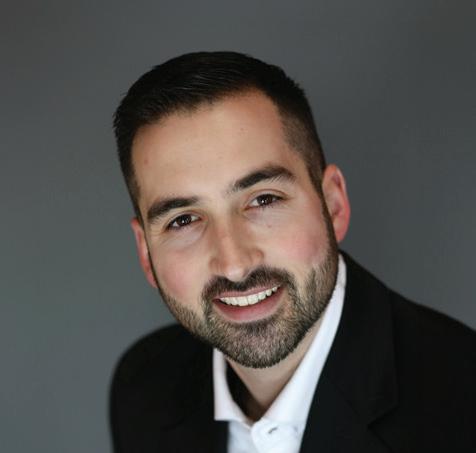
“Weigh the pros and cons of the cost of offering a 401(k) plan to what are the outcomes of offering that plan to your workforce. Employee attraction and retention is one of those side outcomes.”
Kirsten Curry, Leading Retirement Solutions
In-house mentoring programs and cross-training benefits can cost little to implement but garner appreciation. In the human resources survey, 65% of respondents cited professional and career development as “very” or “extremely” important.
Employee assistance programs, which can be relatively affordable to implement, are worth considering, Meek says: “You probably should have an employee assistance program. I’ve seen it in cannabis; we certainly have clients that utilize it. … It goes a long way for the employee, so that’s definitely something all employers should be considering in the cannabis space.”
Paid volunteer programs reap a double benefit, Lee says. The employee is paid for supporting a cause they find worthwhile, and the employer develops rapport with the community.
“All of these are things that can help with retention and making an employer a good place to work or best place to work, which is what attracts talent: when employers have good reputations,” Lee says. “Then individuals say, ‘I’ve heard a lot about that company. I want to go work for them.’”

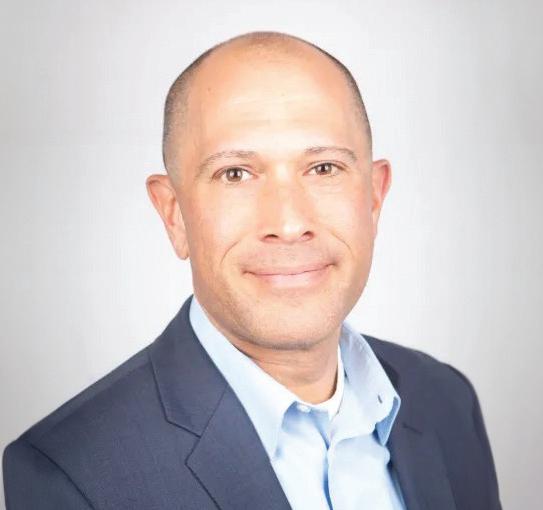
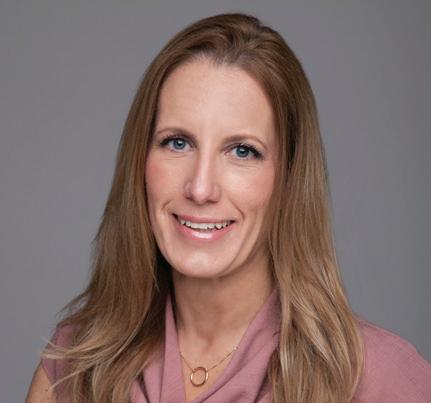
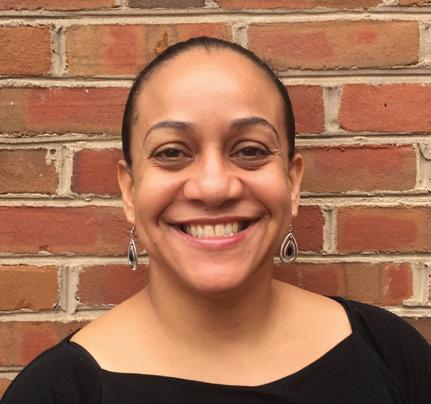
Security:
Business
Share
Free
ACH
Free
Business









































































By Lauren Wethington // Photos by Hailey Kasper
Excitement was in the air at District Five in Eastern Market when Detroit’s Office of Marijuana Ventures & Entrepreneurship hosted a networking event affectionately titled Hangout with Homegrown. The occasion was an opportunity for movers and shakers in the city’s burgeoning cannabis industry to meet, mingle, and network.
The June 13 event ended up being well timed: It was held on the same day the Detroit Free Press published a story about Michigan’s surpassing California in the number of cannabis products sold, making Michigan’s cannabis market No. 1 in the country by that metric.
“With the good news that’s coming out about Michigan today, it’s perfect timing,” said Kim James, director of Detroit’s Office of Marijuana Ventures & Entrepreneurship.
“It’s been a while since we’ve had a social event. … I wanted everybody to be able to celebrate themselves and have some fun, … and hopefully we can make some connections amongst licensees, growers, and retailers, because our real goal is to keep as much business in Detroit as we can.”
The Office of Marijuana Ventures & Entrepreneurship, known informally as Homegrown Detroit, supports cannabis entrepreneurs in a variety of ways. It offers a robust online video library; provides one-on-one consultations; and matches volunteer professionals, as available, with licensees in need.
Social equity is a priority as well; half of all adult-use retailer, microbusiness, and designated consumption lounge licenses granted in the city of Detroit must go to businesses owned at least 51% by Detroit

residents, or residents of another community that meets the definition of disproportionately impacted.
For provisionally approved licensee Richard Fleming, it’s a full-circle moment: He said a marijuana-related conviction shaped the course of his life years ago. Now that he’s received provisional certificates (i.e., placeholder licenses without property) from the city of Detroit, he hopes to open one of the city’s first cannabis consumption lounges.
“More municipalities that are coming online should take Detroit as a model,” Fleming said. “They should put social equity at the forefront, not as an afterthought.”
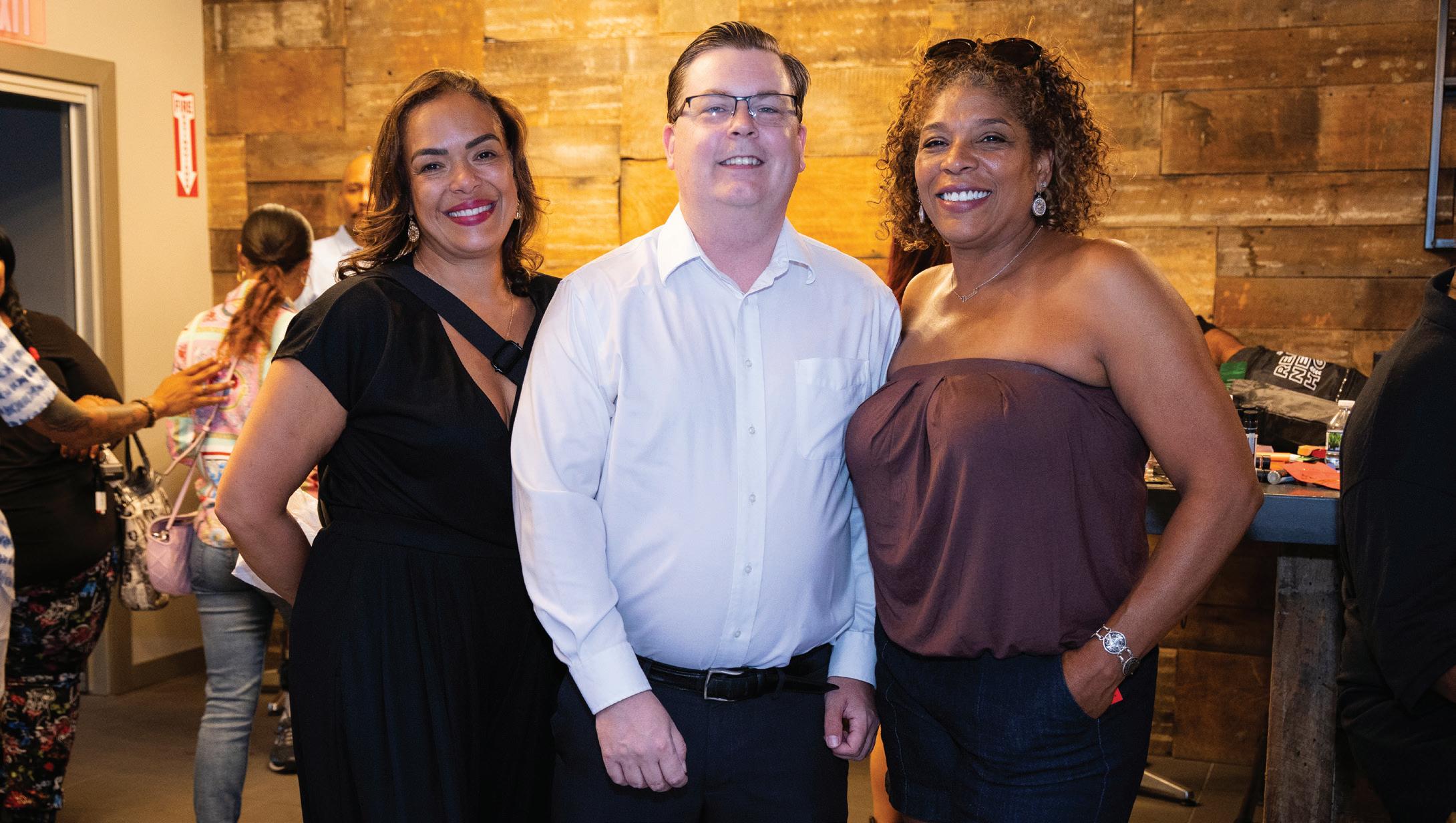
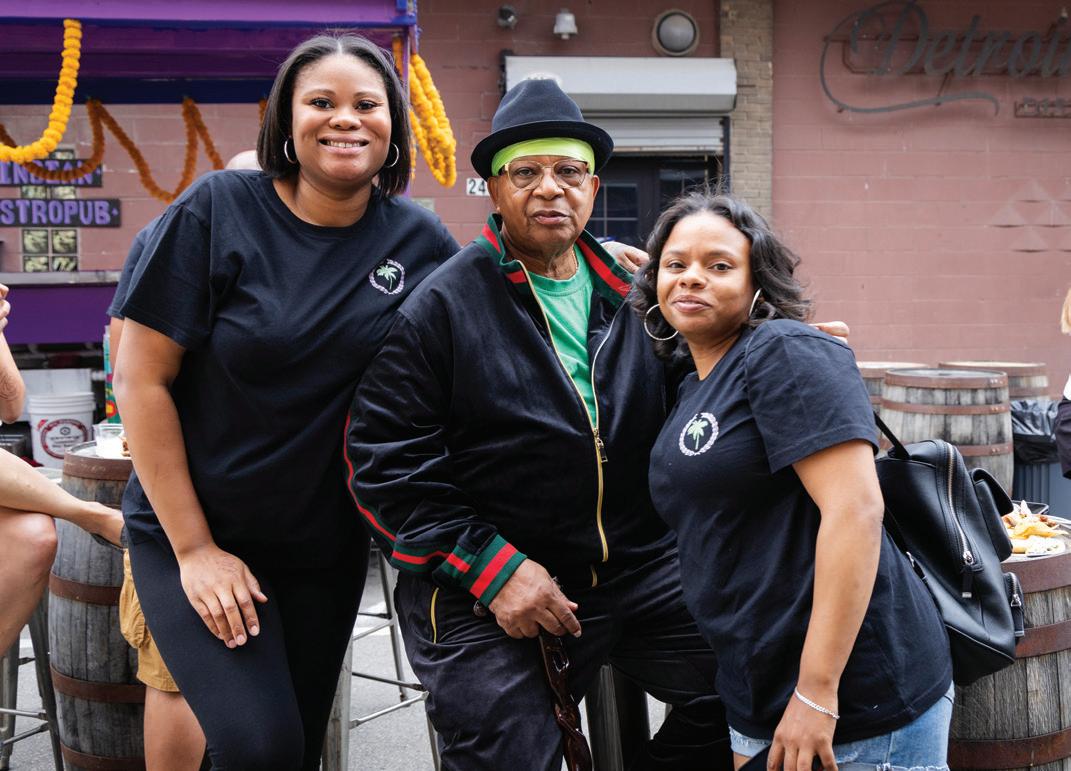

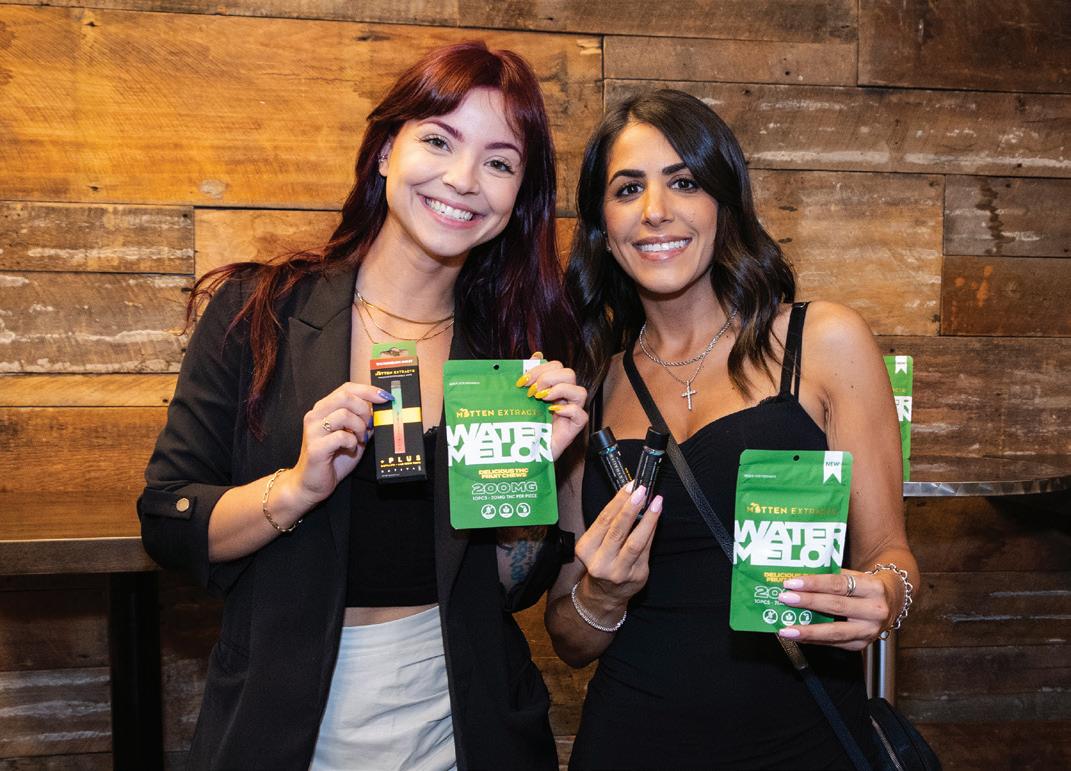

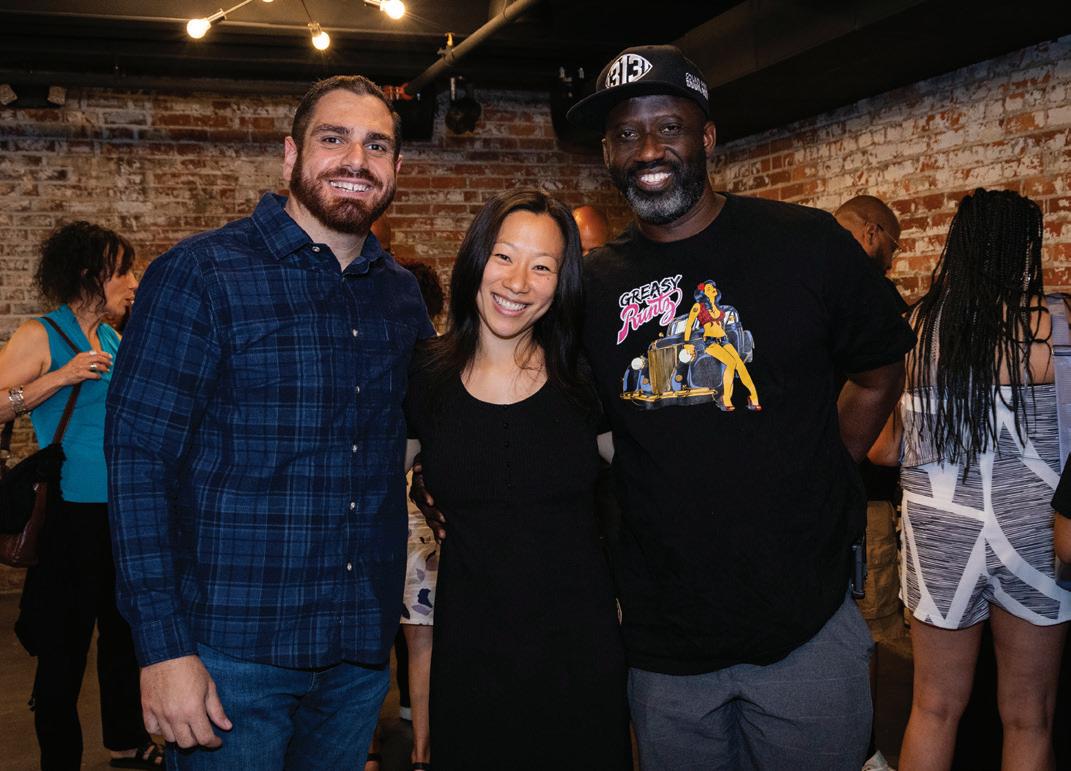

candidates for state and U.S. representative earn at least a B on the MiCIA’s scorecards
By Paris Giles
The team at the MiCIA would take no offense at being called singleminded. The association is unwaveringly committed to seeing pro-cannabis legislation be passed in Michigan, and if that’s to happen, pro-cannabis lawmakers must be elected. The MiCIA doesn’t directly endorse candidates — “There’s a liability that comes with that,” notes Executive Director Robin Schneider — but each election season, the association surveys candidates and publishes a collective report card of sorts. “We came up with the idea of doing a candidate survey and putting out a guide, and we use that to educate our members about where the candidates stand on cannabis issues,” Schneider explains. The MiCIA sent out mailers and emails ahead of the August primary asking incumbent and aspiring members of the U.S. and Michigan houses of representatives to say whether they supported or opposed five important cannabis-related issues.
The questionnaire was purposely brief yet broad and designed to hit on the big three: business, legalization, and criminalization. Schneider says anytime someone asked for an endorsement, they were referred to the questionnaire. She says simply, “We are screening candidates to see if they’re pro-cannabis or anti-cannabis.” The MiCIA received 72 surveys back from state-level candidates and eight back from federal candidates. To earn an A rating, respondents needed to support all five issues; an affirmative on four earned you a B, and so on. With the exception of Republican state Rep. Matthew Bierlein of the 97th House District, whose answers earned a C rating, all of the participating candidates earned A’s and B’s. It’s worth noting that the majority of the candidates who returned the survey were Democrats. Schneider says the fact that the MiCIA was able to give so many good grades speaks to evolving attitudes and “demonstrates broad support for cannabis legaliza-
tion, decriminalization, and expungement. And so we’re happy with the results.”
Still, she was disheartened by the responses to the last question, which asked whether candidates supported erasing prior cannabis convictions that were nonviolent and didn’t involve minors. “Some of the responses were a bit startling,” Schneider says. That question had the least support of surveyed candidates and was why so many B ratings were earned. Many thought the details of the hypothetical conviction were relevant. “It’s not as if somebody would commit a violent crime and then just plead down to a marijuana possession charge. That just goes to show a lack of understanding of how the criminal justice system works,” Schneider says. “As far as we’re concerned, it really doesn’t matter if the person had been manufacturing or [was convicted for] simple possession. We were a little bit alarmed by some of the candidates’
apprehension about automatic expungement.” Schneider credits the hesitancy, at least in part, to the current climate and conversations about crime. It seems candidates are sensitive to appearing too lackadaisical. “We’ve got some work to do in that arena.”
An educated voter is key, but Schneider notes that the 2024 election scorecards are more than information for the sake of information. The MiCIA intends to put its money where the organization’s values lie. “We do have an MiCIA state PAC, and the PAC is used to support pro-cannabis candidates,” she says. “So anybody who didn’t get an A in the survey, we’ll use that in the future as we’re deciding whether or not to make contributions.”
1. Would you support or oppose the SAFER Banking Act that provides protections for federally regulated financial institutions that serve state-sanctioned marijuana businesses?
2. Would you support or oppose exempting cannabis businesses from Section 280E, which prohibits businesses from deducting business expenses from gross income associated with their business due to a Schedule I or II substance?
3. Do you support or oppose cannabis being rescheduled from Schedule I to Schedule III of the Controlled Substances Act?
4. Do you support or oppose cannabis being descheduled from the Controlled Substances Act entirely, leaving legalization up to each state?
5. Do you support or oppose automatically expunging or erasing prior cannabis convictions, as long as the conviction was non-violent and did not involve minors?
Check out the full 2024 election scorecards at micia.org/election-scorecards






